EBR charges a service fee to manufacturers to produce ebike reviews and videos, this began in 2018. It’s the same flat fee for each bike, and it helps us to keep the site going while limiting ad clutter. We appreciate the opportunity to serve you with our opinions and data but respect your right to know that we receive compensation :)
To date, Focus has introduced three electric mountain bikes in the US that utilize the Shimano E8000 mid-motor and a proprietary downtube-integrated battery pack. The SAM² is their enduro model with long 170 mm Fox suspension, but I have also covered the JAM² trail model with 140 mm RockShox suspension and the BOLD² cross country hardtail model with 120 mm RockShox suspension. Honestly, there aren’t many enduro/downhill specific models to choose from on the market right now, but what really separates the SAM² in my mind is its completely hidden battery pack. My understanding is that, to date, Focus is the only company that has produced their own fully custom Shimano battery solution. In it’s stock configuration, the SAM Squared doesn’t offer the high 504 watt-hour capacity as something like the Pedego Elevate, but it does have the ability to accept a TEC Pack add-on battery to jump from 378 watt hours up to 756 watt hours. For those who aren’t planning to ride as far or utilize the highest levels of assist, the bike offers a lighter, stealthier, better balanced solution. Priced at $6k, the SAM² offers all of the high-end components you’d expect from an enduro model such as Fox suspension front and rear (36 Performance fork, EVOL rear shock, both custom tuned), an 11-speed SRAM NX drivetrain, wheel-specific Maxxis tires (the front is slightly wider, offering larger knobs for enhanced control), lightweight Magura MT5 hydraulic disc brakes with quad piston calipers (203 mm front, 180 mm rear rotors), and a Kind Shock dropper post. Additionally, the bike is being produced in three frame sizes and two colorways. Focus offers the same impressive two-year warranty as all Pon Group companies (Gazelle, Kalkhoff, Faraday, Cervelo, and Santa Cruz), and is sold through a global network of leading dealers. It’s a beautiful high-performance electric bike that was built around a non-electric frame. The original SAM enduro bike was adapted for electric with the purist system Focus could find, and that was Shimano. The motor delivers a narrower 175 mm Q Factor, one of the shortest effective chain stay designs because of where the spindle is positioned, and even the display and control pad are skeuomorphic in design (resembling a tiny bike computer and trigger shifters vs. a large display and rubberized button pad seen on many competing products). In my opinion, this purist approach results in some missing features and overloaded interfaces… but it’s respectable, and the bike is certainly a blast to ride. The biggest trade-off may be that the downtube battery is not easily removable for off-bike charging and storage. This means that the bike will always weigh ~50 lbs vs. ~45 lbs if you could remove the pack, and that it may be inconvenient to charge (needing to be positioned close to a wall outlet and ideally stored in a cool dry location). With custom airflow channels built into the downtube, a smartly designed “Bone Rail” for the second battery or bottle cage, and proprietary Fold rear suspension design… there’s a lot to fall in love with here, and I’ll go into more detail below.
Driving the bike is a 250 watt nominally rated mid-drive from Shimano. This is the E8000, a mountain-specific motor that boasts a peak torque rating of 75 Newton meters and 120+ RPM pedal support. It’s one of the most powerful Class 1 ebike motors I have tested, and it kicks on hard. There’s almost a clunk when going from unassisted light pedaling to engaged assisted pedaling… but I usually ride in the highest levels of support, so it’s more noticeable. The motor controller listens for rear wheel speed, pedal cadence, and pedal torque in order to activate. The more energy you put into the system, the more support you will get. Centerdrives tend to be more efficient because they can leverage the multi-speed pedal drivetrain that you control by shifting gears. When approaching a hill, I usually shift down into a lower gear to prepare for increased leg work and then pedal faster to maintain speed going in. Both you and the motor will benefit from proactive shifting like this, and it won’t fade out with those higher pedal speeds the way that the urban-focused Shimano E6000 motor does. The experience is mostly great, but unlike Bosch and some Bafang systems, the Shimano motor system does not offer shift detection/protection. It’s an advanced, super responsive, design that relies on you to ease back as you shift… as you would normally do to avoid mashing and jumping gears. My own experience with electric bikes has led to a more proactive and delicate shifting technique. It’s not just my legs putting power into the chain, sprockets, and derailleur; there’s also a very powerful motor contributing up to 300% support. The peak watt output is 500, double the nominal rate, and that’s exactly what you want for climbing steep trails (so you can enjoy descending them), just be conscious of how you interact with the bike. Some riders might appreciate the “instant on” feeling of the motor and faster shifting, it’s very capable and more raw than some of the others I have tested.
Powering the motor and color backlit LCD display unit is a tubular battery pack that is installed in the downtube by two long bolts. You can see the bolts below the downtube and their attachment point along the top. A thin black metal piece called the “Bone Rail” acts as a large washer for the two bolts and doubles as a mounting point for bottle cages and other accessories or the TEC Pack and Smart Rack plastic accessory mount. Both the TEC Pack and Smart Rack are easy to click on and off of the Bone Rail and this modular system is what really shines on the latest round of Focus electric bikes. For someone like me who is a lightweight and very active rider, the JAM² and SAM² are near perfect in optimizing frame balance (keeping weight low and center), stealthiness (keeping drive systems hidden), and performance (offering enough juice to last several hours of rigorous riding). During Interbike 2017, I was able to see what the tubular battery pack looks like because Focus had one outside the frame. I took a photo which can be seen in the video review or scrolling through the thumbnails above. It has the same LED charge level readout as the external TEC Pack (despite being completely unusable and hidden) and is encased in plastic, then mounted inside the downtube. I’m told that there are air channels on both sides of the pack that go from the large plastic vents near the head tube down to drains on either side of the motor. This allows air to circulate and cool both the motor and battery while allowing dust and water to drain out. It’s a neat design that reminds me of a vintage sports car with a hood scoop. Both the internal battery and optional TEC Pack offer 36 volts and 10.5 amp hours, which is a bit low for the 2018 season (many competitors are offering 500 watt packs), but again… you can combine the two to create one of the highest-capacity products in the space. The additional battery does cost $600 extra, but it can be charged off of the bike… So many cool scenarios come to mind for me, like relay races or camping trips where riders may share packs and deposit them to charge in different locations along the way. You can swap between the same TEC Pack between the BOLD², JAM², and SAM² which is very cool, and allows for a range of price points (starting at $4,499 with the BOlD²). If you do have a TEC Pack, note that it will drain independently from the main battery when plugged in. These packs do not balance evenly when charging and discharging the way that the Bosch system does (which you can see on some Riese & Müller models). In fact, you must charge the bike and then the TEC Pack separately. This could be a pro or con depending on how you ride, maybe you always want to keep the main pack as a reserve tank and cycle+charge the TEC Pack each time? Focus has made a custom charger to go with their proprietary battery design, and I really like it. Rather than a friction plug, it uses a magnetic Rosenberger plug that will easily pop out if tripped over. The charger itself is a bit large, but delivers faster 4-amp charging. It’s my preference compared to the larger stock Shimano charger, and I like how it plugs into the base of the top tube vs. down by the crank arms and motor which seems vulnerable on so many competing ebikes.
Operating the bike is fairly straightforward, but physically separated at times. What I mean is, after you have charged the battery or batteries, and are ready to turn the bike on, you have to hold this power button on the top tube for a couple of seconds until it slowly lights up. When filming the video review, I pressed this button for just one second and it did not activate. At this point, the Shimano Di2 display panel blinks on in color, and shows your battery level with five bars, current speed, and assist level. It’s clean, stays out of the way, but is not removable, does not have a Micro-USB charging port for accessories, and is very far to reach if you want to switch views. There’s a little rubber circular button on the base of the display that lets you cycle through trip distance, average speed, timer and some other readouts… but there’s no way to reach this while riding unless you completely remove your right hand and reach over very carefully to press the little circle. I did this while filming during part of the ride and felt a little precarious. It’s a far cry from most of the other major display and control pad designs like Bosch, Yamaha, and Brose which are large and easy to reach. Usually, you can adjust assist and menus by reaching over from the left and pressing an i or mode button. Even this can be sketchy if you’re navigating technical mountainous terrain, which is exactly what the SAM² is built for. So, I wouldn’t recommend utilizing these sub readouts unless I was fully stopped… and make sure you pull of the trail to do so, so you won’t get rear ended. The good news is, you can easily change assist levels by pressing the trigger shifter buttons on the left. Navigating from no-assist to Eco, Trail, and Boost is satisfying because you feel and hear this click, like shifting gears on a traditional bicycle. It’s just an illusion, a skeumorph, as no cables are being pulled, just electronic signals being sent to the display panel control system. For those who wish to adjust the clock, brightness, turn off the beeping noise (associated with changing assist levels) or explore other options, just hold the rubber circle button on the display for several seconds to get into the settings menu and then navigate up and down with the left shifter buttons. You can get even more options by downloading the Shimano E-TUBE app for your smartphone and syncing it, and you can also connect ANT+ devices to track biometric data. Considering there are only three buttons here (the up and down shifter buttons and the little circle rubber button) I feel like the menu system is very well laid out and easy to use. I just wish that Shimano had replicated the little rubber circle button on top of or on the side of the left trigger/button mount so it could be utilized more conveniently. All things considered, the cockpit on this electric bicycle is one of the cleanest and simplest I have tested, it’s also well protected and not distracting. However, the display isn’t always easy to read because of its small size, dark smoked plastic lens, and fixed position (think glare) but the tactile click of the shifter buttons works great once you know the bike is turned on. Since each level of assist is associated with a different color on the display, there’s this associated “glance” experience where you don’t necessarily need to read in order to know what’s going on… unless you’re color blind. Going a bit further with the criticisms, for an e-bike that looks so stealthy in some ways, why is the on/off power button so large? It does look sturdy, but I’m not sure it needed to be backlit with blue vs. red (which wouldn’t be as distracting during night rides). It does take those few seconds to boot up, so perhaps the LED light ring was introduced as a strong signal to not press again out of impatience.
The Focus SAM² will allow you to enjoy downhill routes without the chairlift, or simply more times than would be possible on human power alone. It’s a beautiful product with one of the best drive systems, but there are some compromises. It’s a purist electric bike in almost every way, but it’s intended for skilled riders who know how to shift. You won’t be dropping the chain thanks to a narrow-wide chainring and full-surround guide. You could replace the chainring with another standard component because it isn’t using a reduction system like the Bosch Performance Line motors (and there isn’t any pedal friction). I enjoyed cycling from the city of Santa Cruz, California out to Wilder Ranch and up to the picnic table lookout. Focus marketing rep Andreas Krajewski rode a JAM² while I was mostly on the SAM² and swapped back and forth a bit. It’s interesting that this model went with narrower 2.4″ and 2.5″ tires vs. the larger plus sized tires of the JAM² which offer more float and deflection. I was a little surprised that the drivetrain on the SAM² didn’t offer 11 to 46 teeth (it goes 11-42) and I welcome input from Focus reps or riders here on why that might be. The frame is manufactured in Taiwan but all bikes are assembled in Cloppenburg Germany at Focus headquarters (Derby Cycles). The parent company, Pon Group, is based in the Netherlands but the company is also present in Stuttgart Germany, where Andreas is from originally. I’m told that the bikes are tested in a climate chamber, which is pretty cool, and I want to highlight again the patented linkage design and how both shocks are custom tuned to work with the SAM kinematics. There’s a higher level of precision and engineering here that reflects the peer companies like Bosch, Mercedes, and Porsche who are also present in Stuttgart. I’m not advanced enough to comment too much on the Fold rear shock design, but was told that 30% is sensitive for small bumps and that it becomes more progressive with 70% going towards bigger hits. I certainly like the vertical shock, how it frees the main triangle for lifting the bike and using the TEC Pack. Note also the hollow spindle, lightweight crank arms, and Race Face AR30 rims. I wasn’t a huge fan of the saddle, it’s rounded on top vs. more flat and just didn’t feel as good as some Ergon and Specialized products for my body. Much of the climbing done in this video felt fast, but I never got above 11 or 12 mph despite being in the highest level of assist and spinning pretty rigorously (you can even see Andreas standing and working hard for many sections, I suspect he was not in the highest assist). I reached ~27 mph on descents, being careful with the blind curves of this trail. The newest Focus electric mountain bikes were built as bikes first and then adapted for assist… and that’s the idea behind the “squared” naming. It was fun testing the SAM2 on a longer ride and I want to thank Focus for partnering with me on this post and Andreas for going on camera. I’ll do my best to answer comments below and welcome your feedback, photos, and connection in the Focus electric bike forums.
Pros:
- The Shimano STePs E8000 motor is compact, tightly integrated into the bottom bracket area of the frame, it blends into the black colors, it’s also narrower than many other ebike centerdrives right now with a 175 mm Q Factor so your leg and feet position feel more like a traditional bike, the spindle is positioned further back so it supports a shorter chain stay length for snappy ride feel, and it spins well above 120 RPM which is slightly better than the other leading motors such as the Bosch Performance Line, Brose, and Yamaha PW-X which assist up to 120 and then back off
- The battery is completely hidden and protected inside the downtube, it might even go undetected for those who prefer a stealth looking electric mountain bike, Focus and Shimano have a close relationship and this battery design is unique to these bikes (the SAM², JAM² and BOLD²)
- Weighing in at ~50 lbs, this is one of the lightest full suspension long-travel enduro electric mountain bikes being sold right now in the US, especially with such a capable motor and battery pack, the optional TEC Pack doubles range and only adds ~4.8 lbs
- Focus is refining their product lineup in such a way that you can opt for electric or non-electric but get the same geometry, look, and ride feel… The SAM², JAM² and JAM provide this option
- The charger puts out 4 Amps, making it about twice as fast as most standard chargers, and it’s compact and lightweight at ~2 lbs, the plug connector is magnetic and will pop off vs. bending or tipping the bike if tripped over, it’s an upgrade over the stock Shimano charger in my opinion
- You shouldn’t have a problem with chain drops on this e-bike because the front sprocket uses narrow-wide teeth to improve grab and reduce slip, there’s also a plastic full-surround chain keeper in place of a front derailleur
- I like that Focus is using a traditional sized chainring because it makes switching sizes easier than the proprietary rings offered by Bosch and TTIUM, there is also very little resistance when pedaling because there’s no reduction gear gearbox to match a stepped-down chainring
- For those who reside in markets where the Pro model is sold, with Shimano Di2 electronic shifting, it’s neat that the Shimano display is used for both assist level and shifting and is powered off of the main battery pack vs. an independent cell like some other e-bikes I have see (specifically, the Stromer ST2 S)
- The front and back tires use different tread patterns to optimize handling and ride efficiency, the front is slightly wider while the rear is a bit shallower and uses smaller knobs, both tires are from Maxxis and offer EXO puncture protection
- Great aesthetics, available in two colors with matching accents on the fork, I appreciate the thick rubber slap guard on the right chain stay to reduce nicks and scratches
- There are air channels on either side of the downtube that vent upwards and drain downwards to promote cooling of the battery pack and motor, I was told that water and dust can get in without wrecking any of the electronics
- The display offers a good range of power adjustment (three assist levels) and readouts on its own, but you can use the smartphone E-TUBE app from Shimano to further refine and adjust the two higher assist levels or your Di2 shifting setup depending on which model you buy, you can also pair the bike with an ANT+ heart rate monitor for biometric feedback
- Powerful, high-quality hydraulic disc brakes from Magura, the two-finger levers offer adjustable reach to fit different hand sizes and since this e-bike comes in three frame sizes, quad piston calipers allow for faster cooling and offer more power when you really need to stop… both important factors on an enduro/downhill ebike
- It’s really neat that the downtube “bone rail” system can be used for a bottle cage if you aren’t using the TEC Pack battery, the Tec Pack comes with a quick release bottle adapter so you can swap between the two, so many electric bikes are not able to fit bottle cage bosses or they just skip them… so it’s cool that the SAM² solved this in a way, note also that the downtube mount is adjustable and could work with a folding lock, mini pump, or other accessory using the same plastic plate as there is plenty of room because of the vertical (inverted rear suspension) and proprietary Fold linkage design
- Focus developed a new rear suspension design that is used on the SAM, and JAM series called Fold, it allows for 30% travel on smaller bumps and and reserves 70% for larger hits, it should reduce bobbing and compete well against standards like Horst Link four bar
- I’m a big fan of seat post droppers, they make it easier to mount the bike and more comfortable to transition from bumpy or downhill sections and jumps to cross country or road… so it’s nice that you get one with this electric bike
- The SRAM NX derailleur comes with a roller clutch (the little circle lock button on the side) that can lock the derailleur in a down stretched-out position for easier rear wheel and drivetrain maintenance
- It’s neat that you can choose from the SAM² with long travel or the JAM² for more trail riding types of applications and pay the same price vs. having a big premium
- The motor was designed to create very little pedal resistance and I found that I could pretty easily pass the top assisted 20 mph speed without feeling drag as I would on some other gear reduction mid-drives
- More brands are opting to use color LCD displays and trying to make peripheral communication possibly by associating a color with each assist level so you don’t have to look down, you can see that here with white for off, blue for eco, green for trail, and yellow for boost
- Minor detail here but the optional TEC Pack battery has a capacity readout LED system, so you can tell how full it is when off the bike, I was impressed on the relatively low $600 price point of the TEC Pack as well
- Weight is balanced well here, both the motor and battery are placed towards the center and low on the frame for improved handling and they are both sprung, there is very little unsprung weight on these electric bikes so the suspension can perform optimally
Cons:
- Many of the Bosch, Brose, and Yamaha display panels are now offering Micro-USB ports so you can plug in portable electronic devices and get power on the go, this would be handy and nice to have if you use your phone for GPS or maybe the E-TUBE app from Shimano, but this display did not have any sort of USB port that I saw
- The display panel is compact and durable, protected well by the handlebar, but it isn’t removable or adjustable and the LCD is pretty tiny, in some of the bright outdoor photos above you can see how it’s not super easy to read
- The tiny round button at the bottom of the display panel could be a bit difficult to press when wearing gloves and it’s positioned out of reach while steering, I wish this button was duplicated on the housing for the left trigger buttons so I could adjust readouts while pedaling without taking my hand off
- The primary battery is not designed for removability, it can be removed for replacement but this requires taking off the motor unit and sliding the pack down through the bottom bracket area, the downside is that you’ll need to park the bike closer to a power outlet or use an extension cord to charge vs. bringing the pack inside (keep the bike and optional extra battery in cool dry locations to optimize battery life, extreme heat and cold can be hard on them)
- It felt like a bit of a missed opportunity that the motor does not offer shift detection, especially if you get the Pro model with electronic Shimano Di2 shifting, it seems like having all Shimano systems could allow them to do something special here like talking to each other to reduce mashing and drivetrain wear
- Only the front wheel offers quick release, I was a little surprised at this because trail maintenance and portability are easier with both wheels having quick release but maybe this was due to the electronic shifting? You only need a 6 mm Allen key to get the back off
- Minor consideration here, it sounds like the bike uses one or the other battery pack, it doesn’t try to balance them like Bosch has done with their double-battery setup, and this could mean that you cycle your frame battery more frequently and wear it down a bit quicker if you aren’t occasionally clicking in the TEC Pack power cable and trying to balance them yourself manually, my understanding is that batteries like to stay between 20% and 80% for maximum charge cycles (this is partially why many smartphones have a big alert when they start to get to the 20% mark), you’re also going to have to manually connect the charger to the TEC Pack and then the bike to charge both packs vs. Bosch and some others which allow for dual-charging by connecting to just one port on the bike (you can see this with the Riese & Müller models like the Charger GX)
- For me, the Shimano E8000 motor doesn’t go from zero to on quite as smoothly or as seamlessly as Bosch, Brose, or Yamaha, it seems like there is a cliff where you push with enough torque to get it to respond and then it sort of clicks on and you notice and even hear it, it still works great but seems to have a torque threshold or power cliff just up from zero
- I wish the display readout for battery level showed 10 bars or maybe a percentage estimation vs. the standard five bars which represent big 20% drops, but at least there is a range estimate menu for more precision
Resources:
- Official Site: https://www.focus-bikes.com/us_en/43689-focus-sam.html
- More Pictures: https://photos.app.goo.gl/QNUrfEA802cz0yLq2

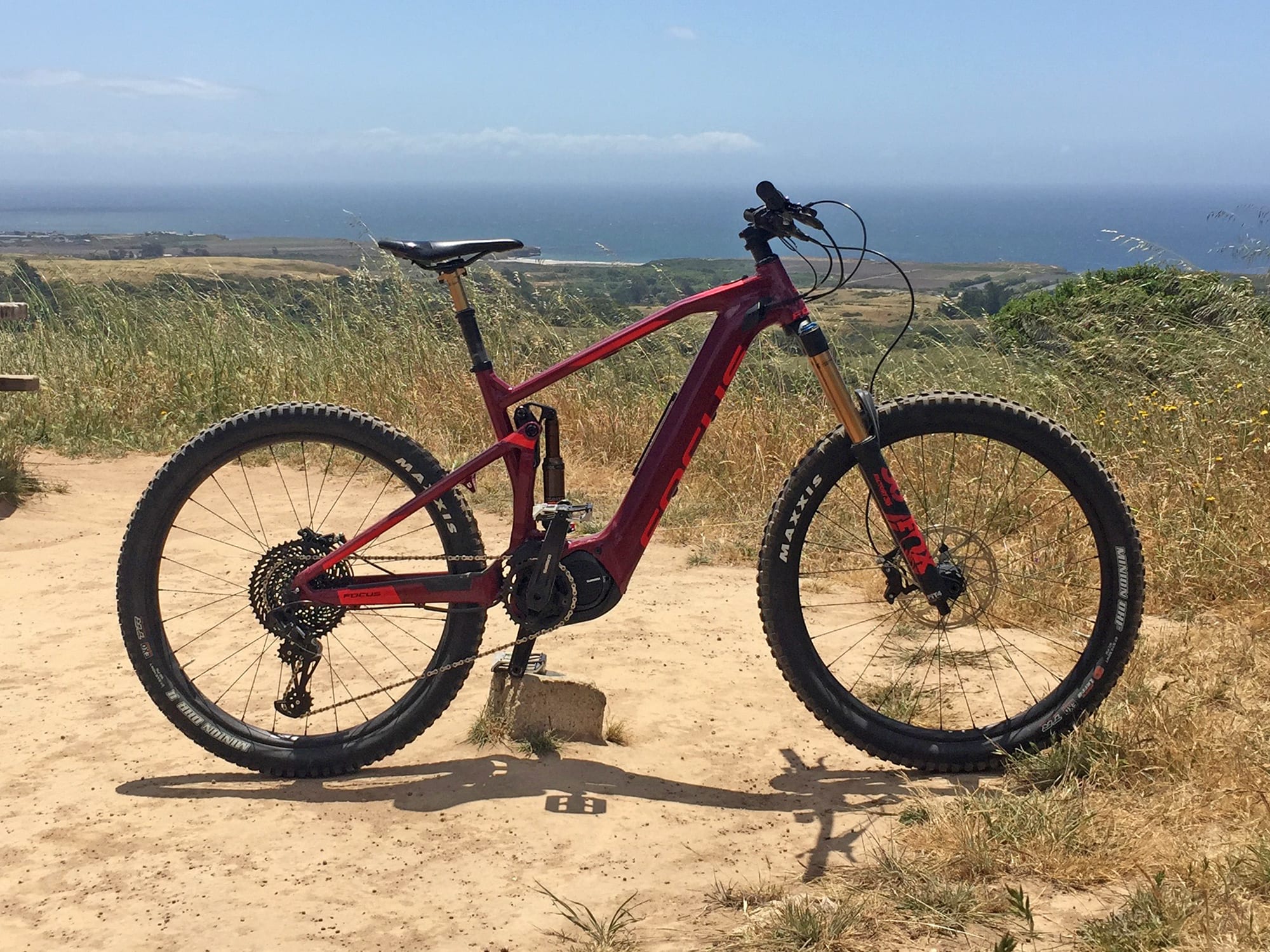
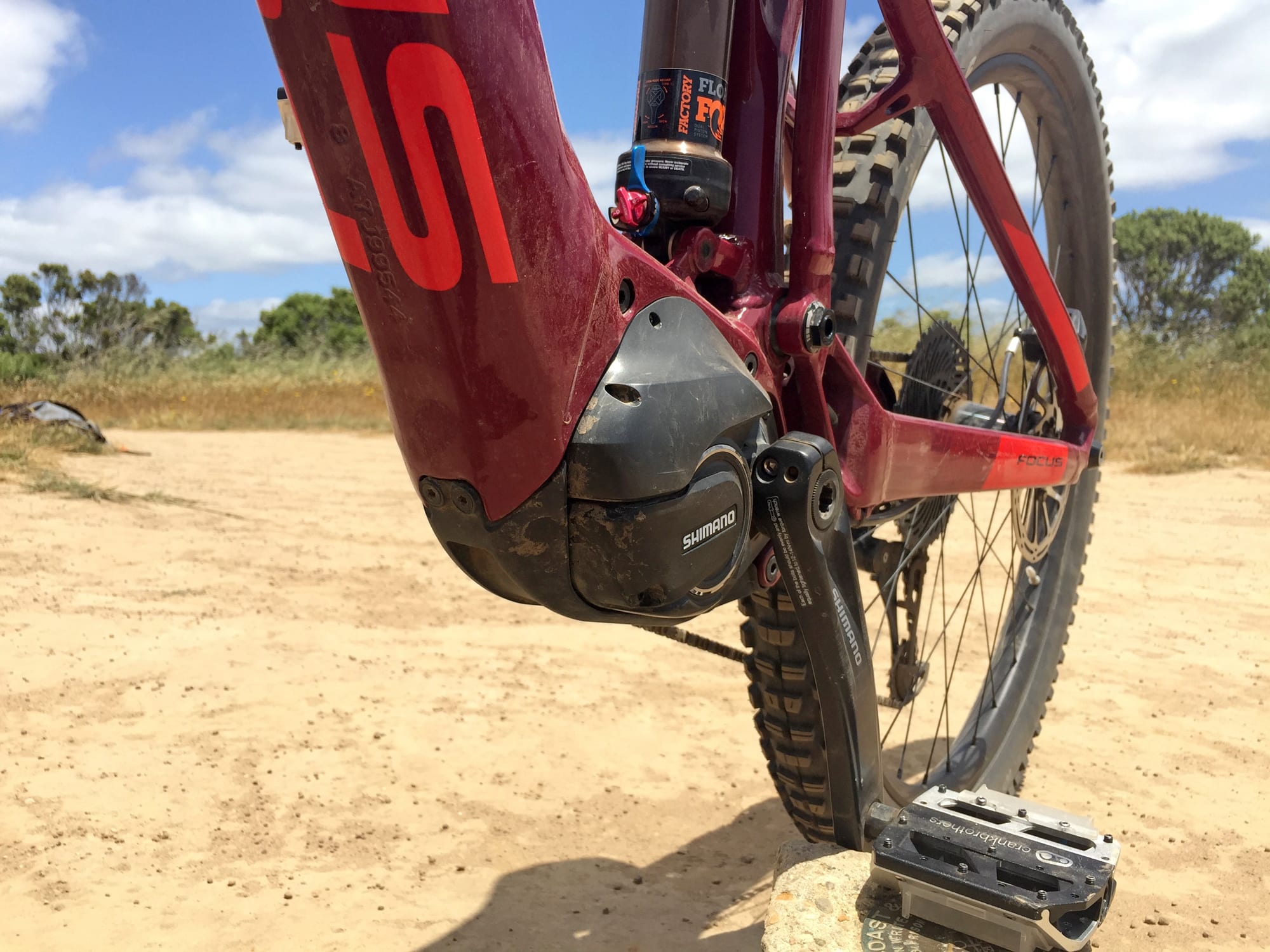
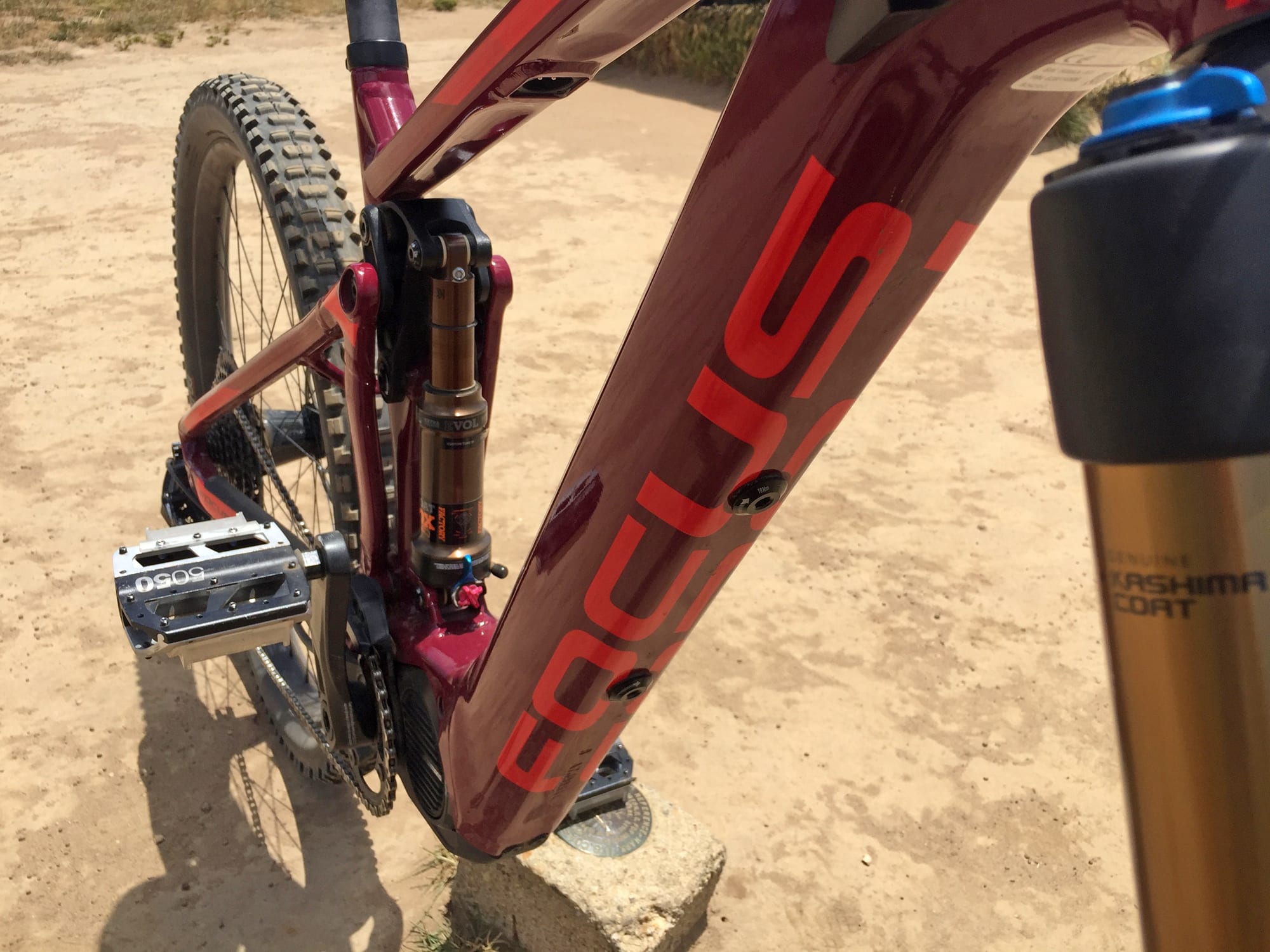
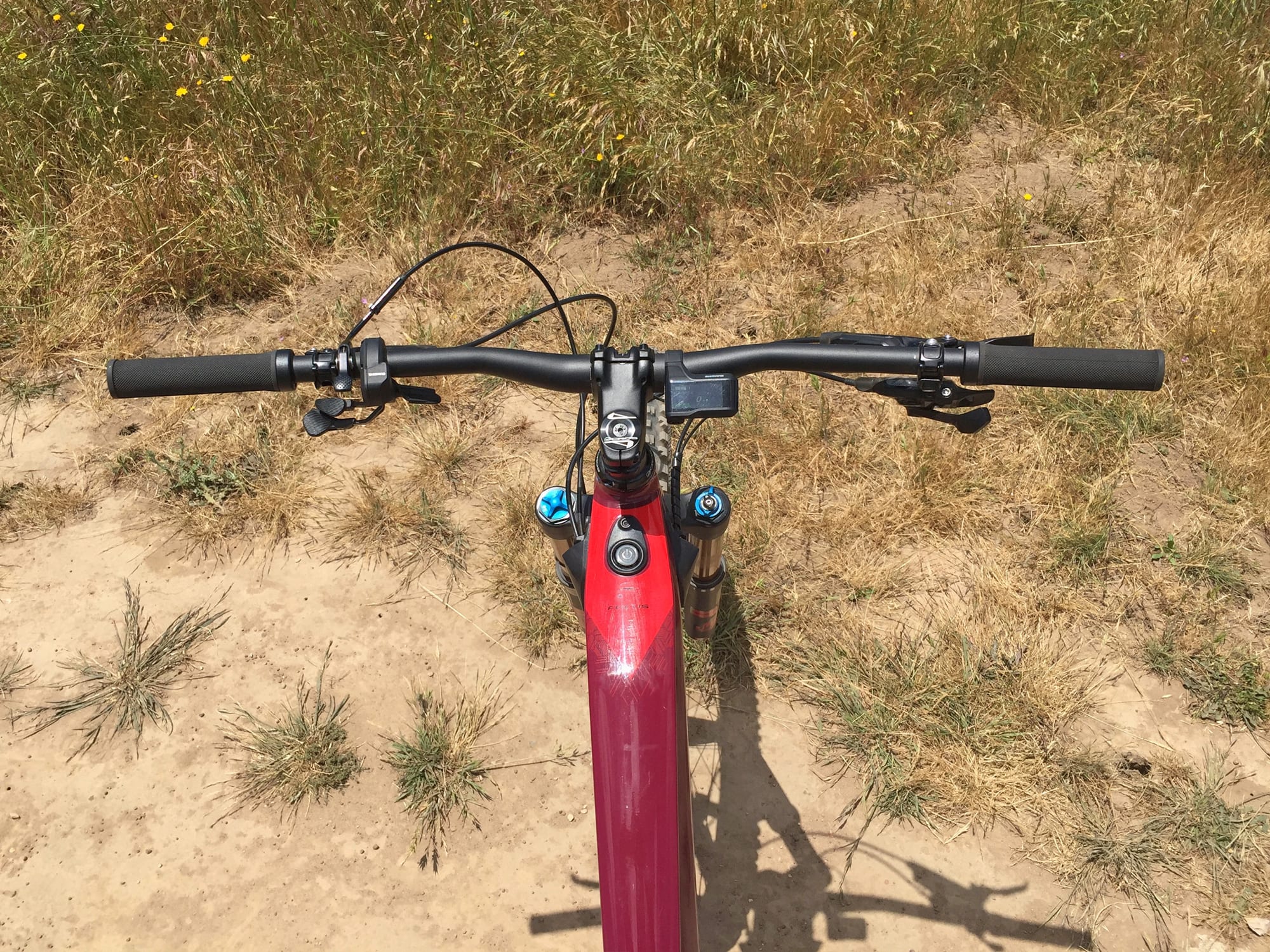
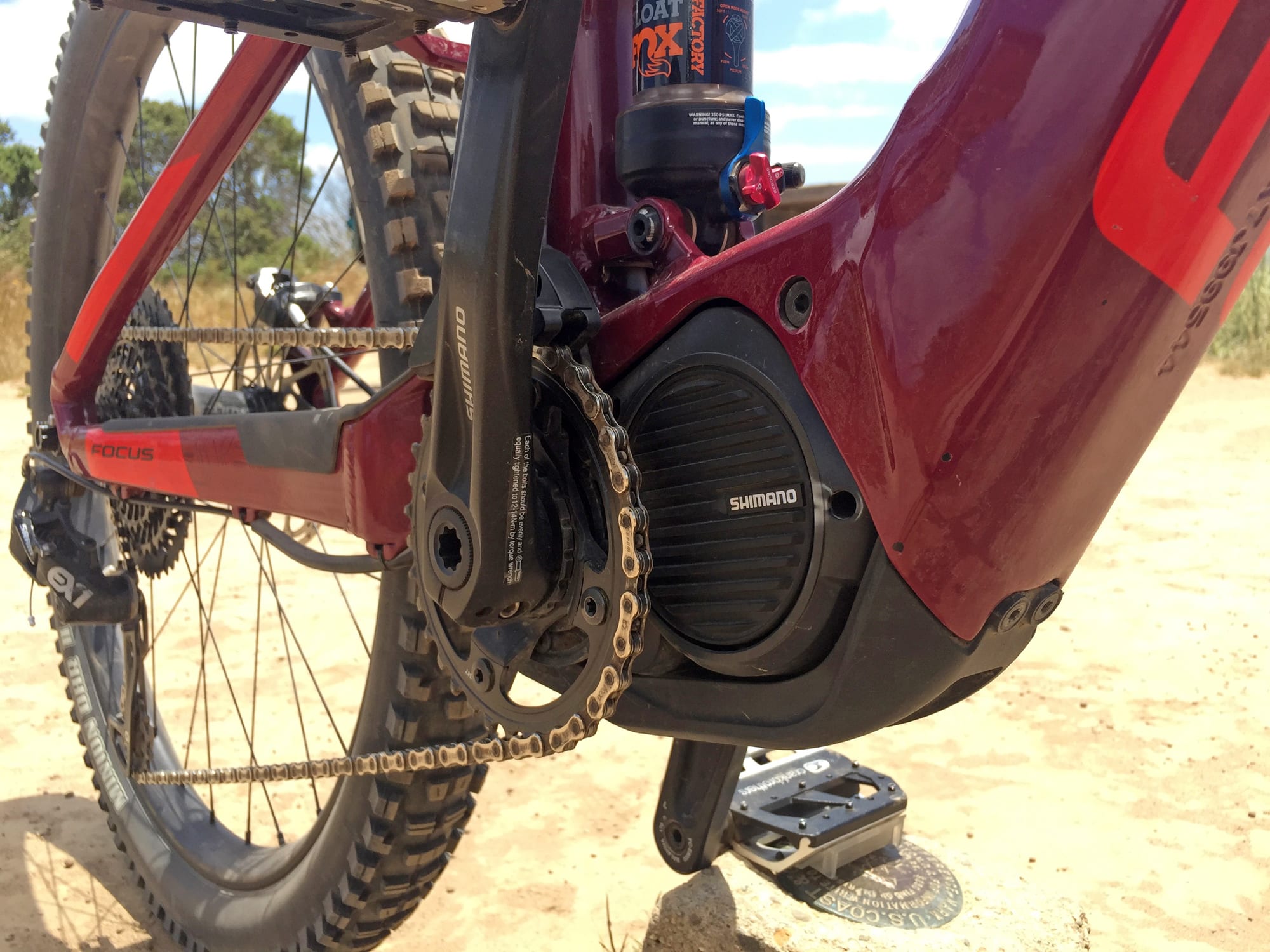
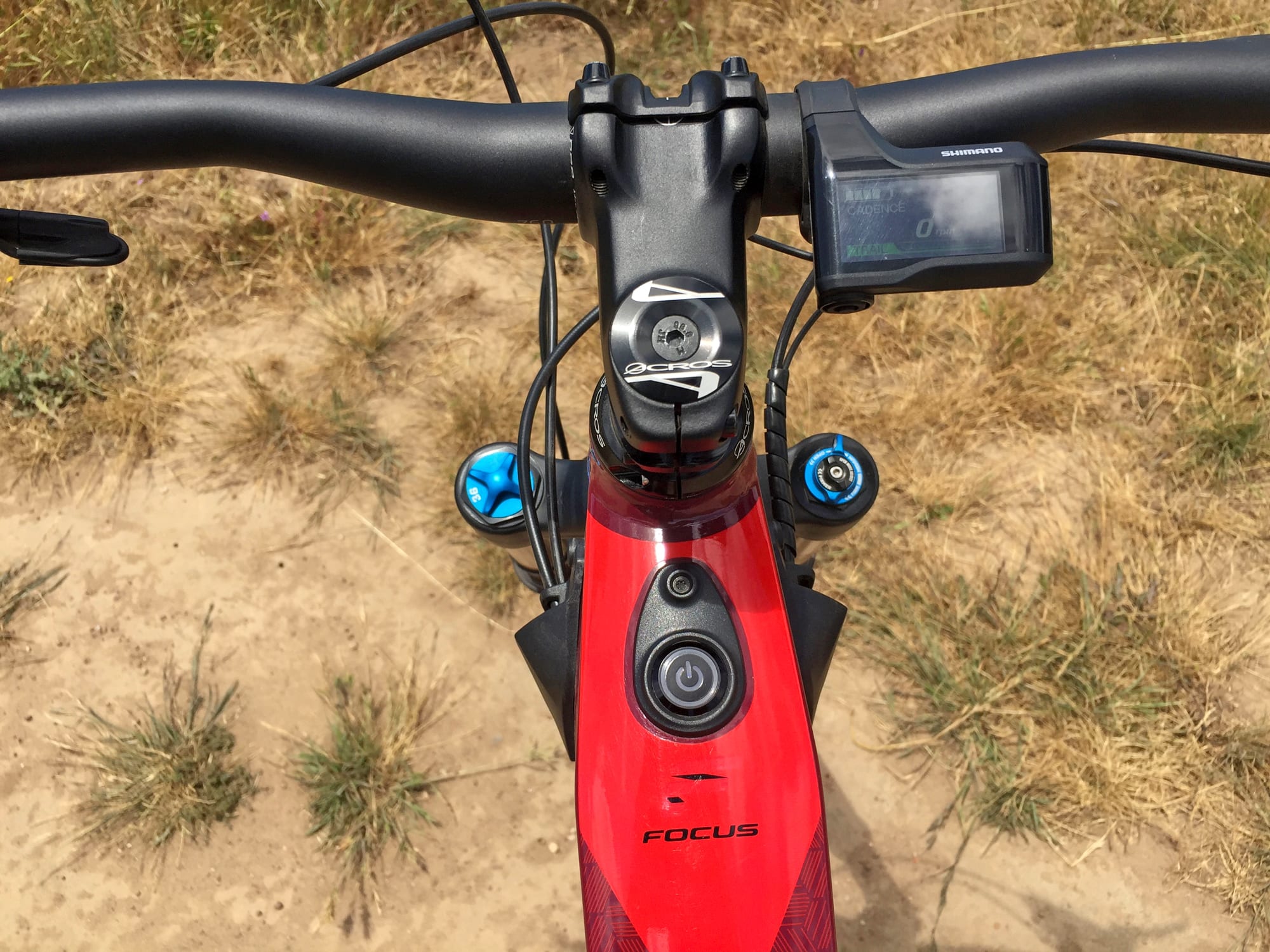
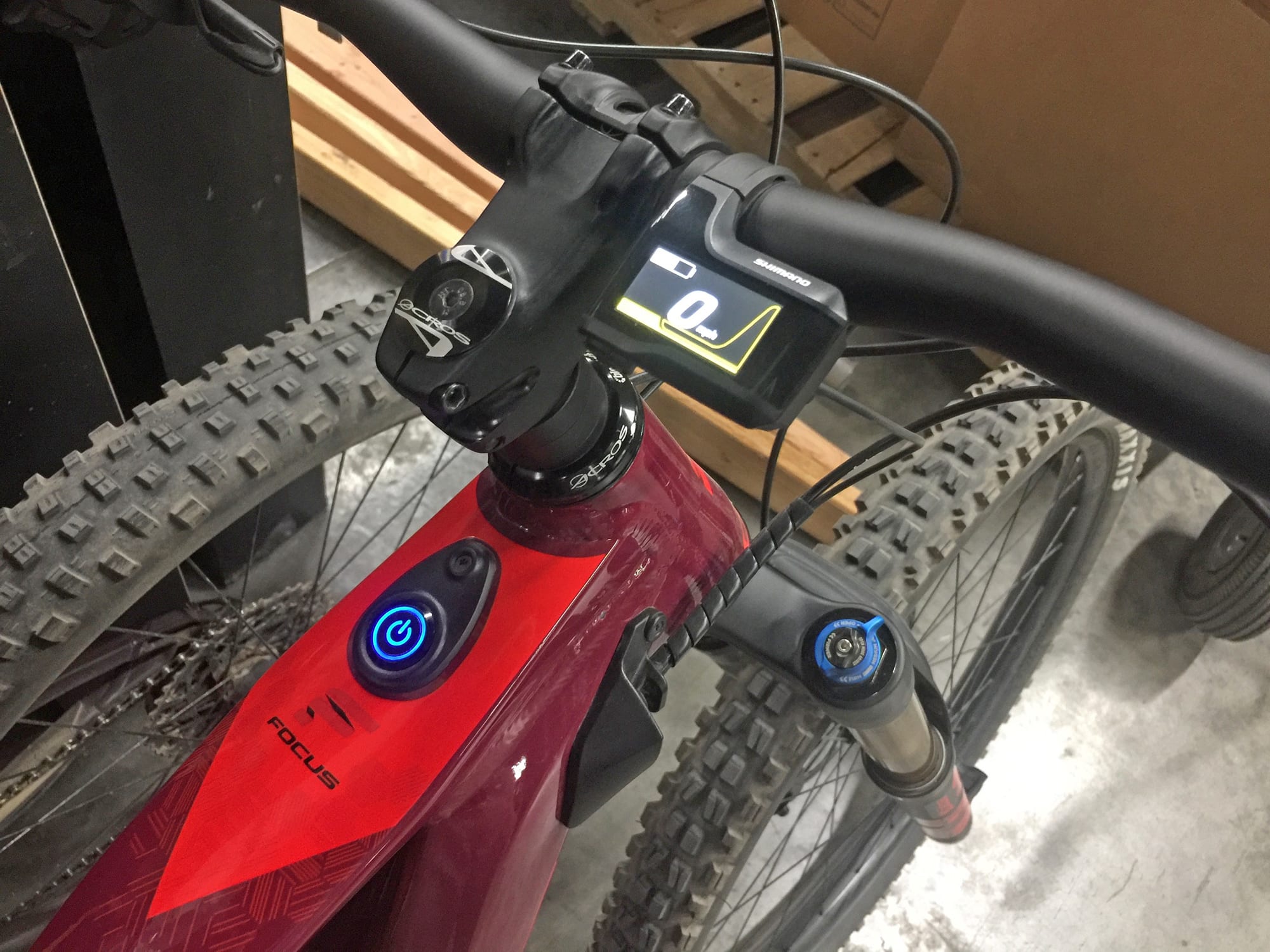
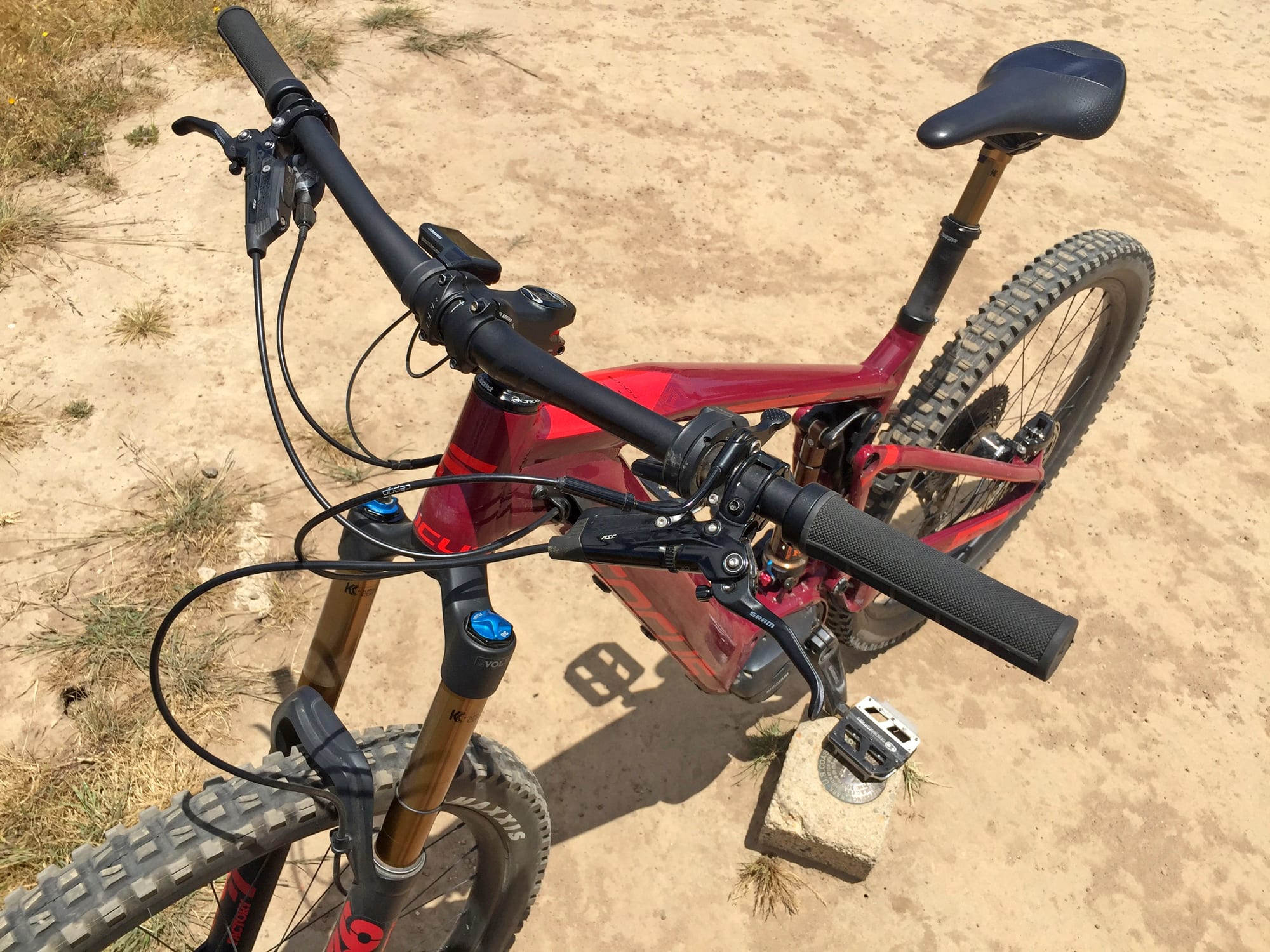
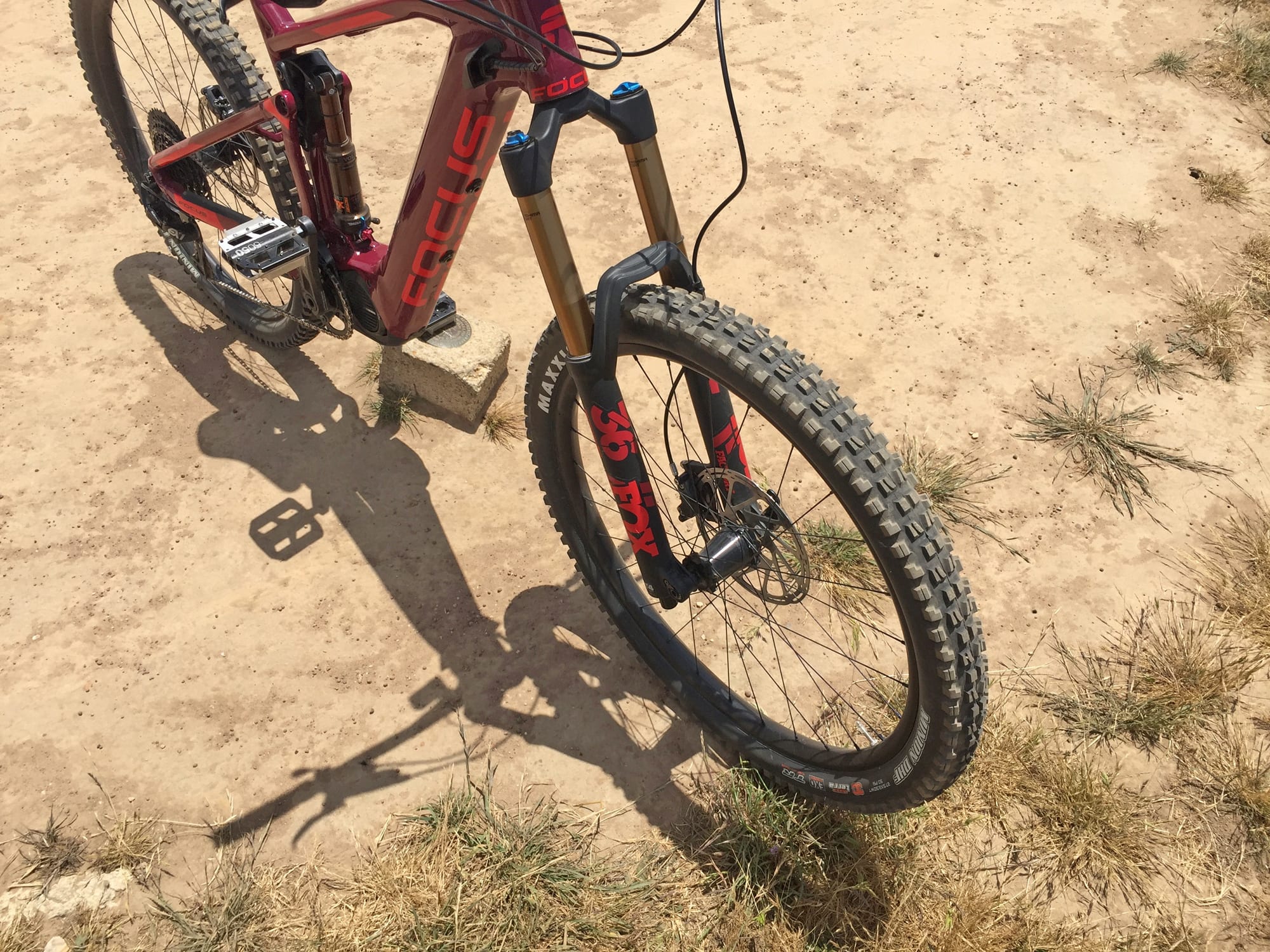
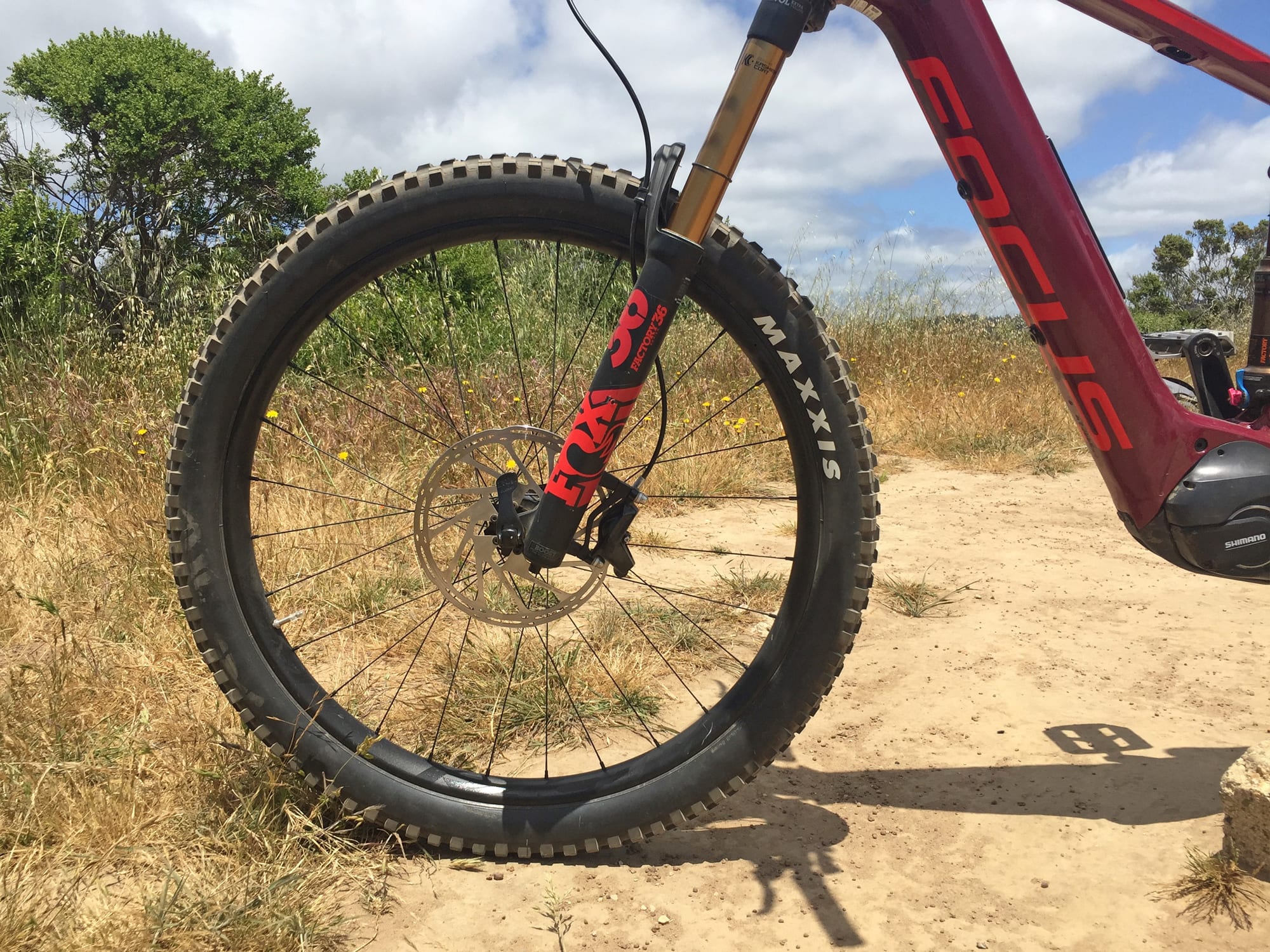
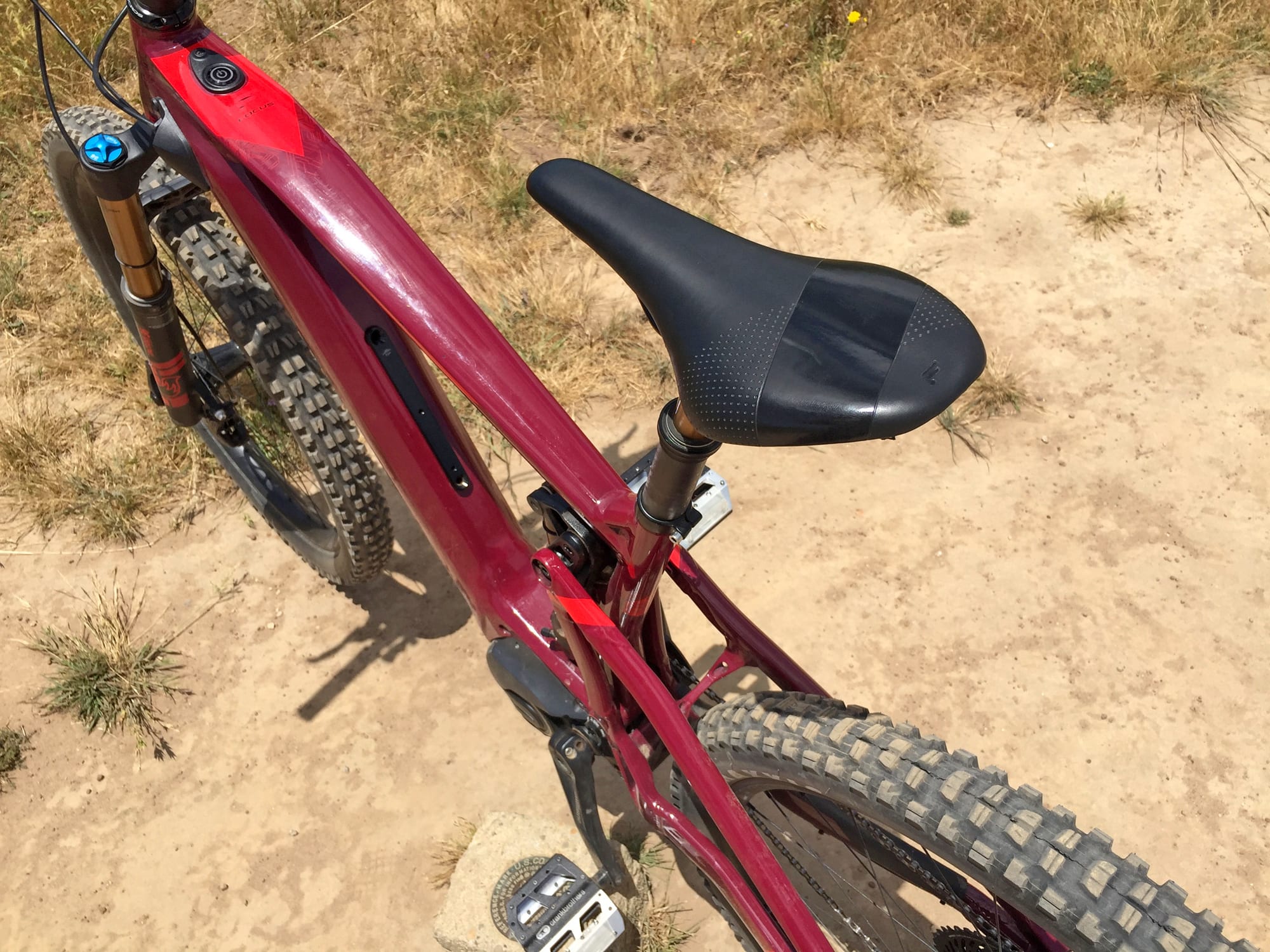
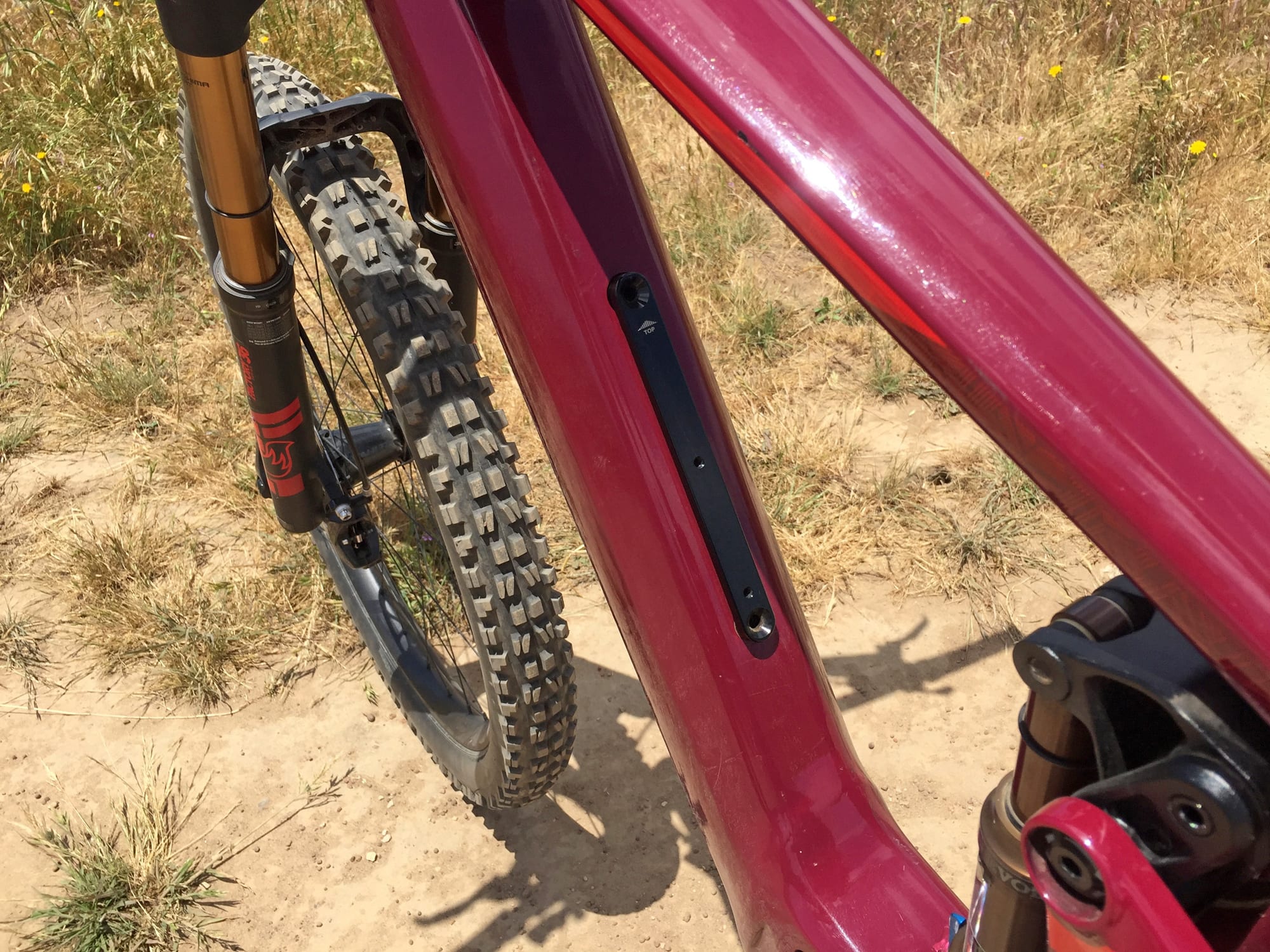

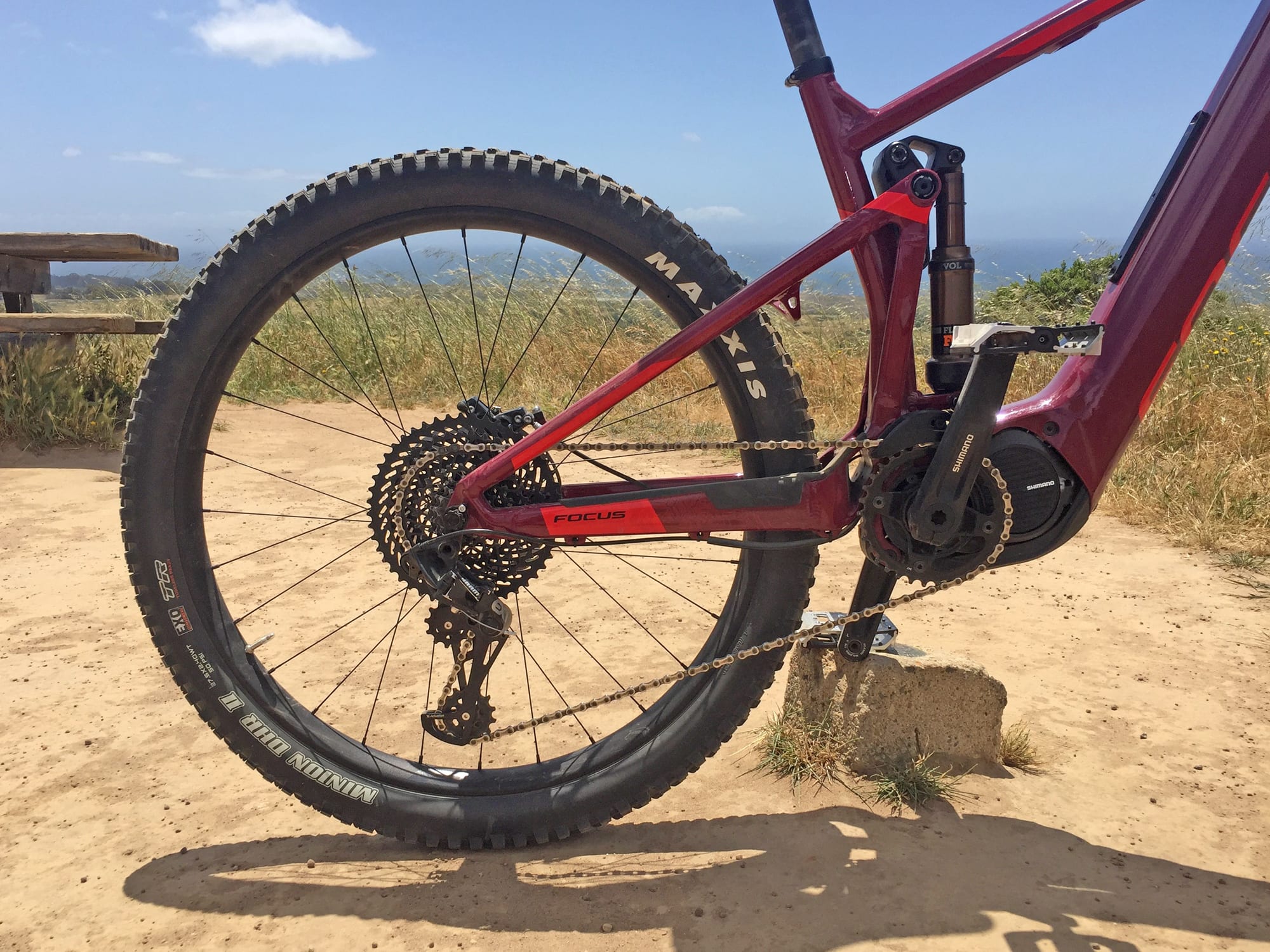
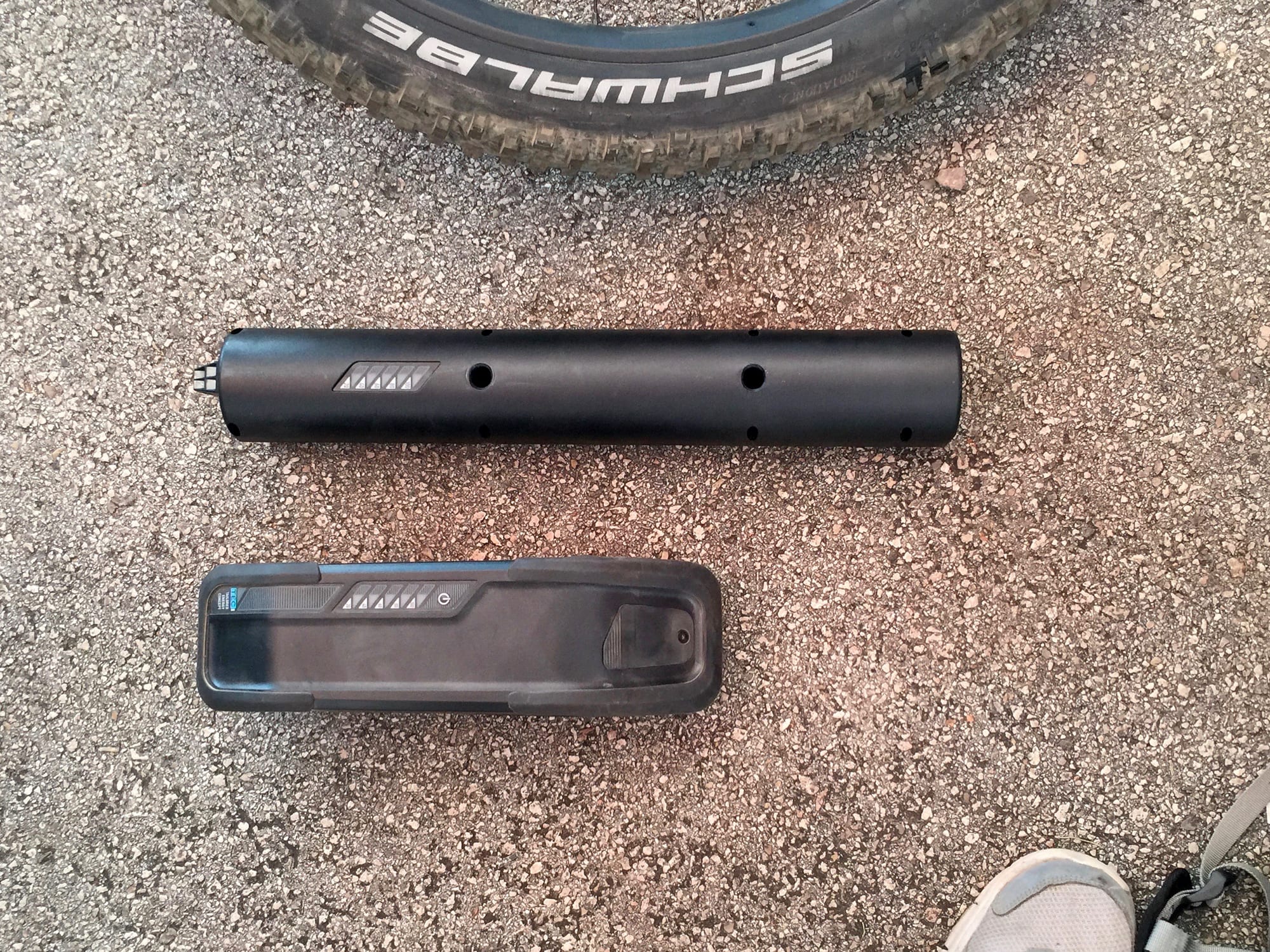
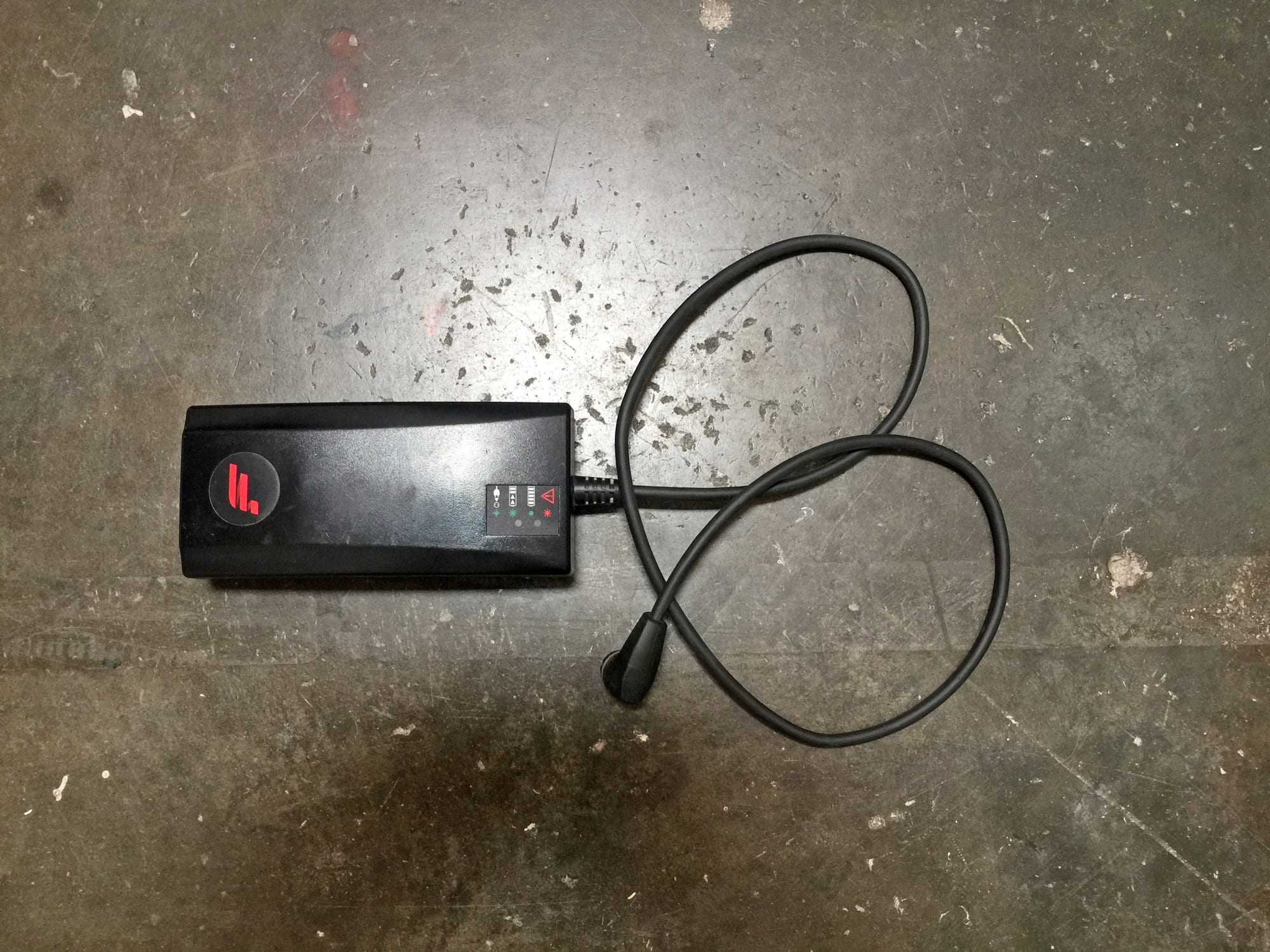




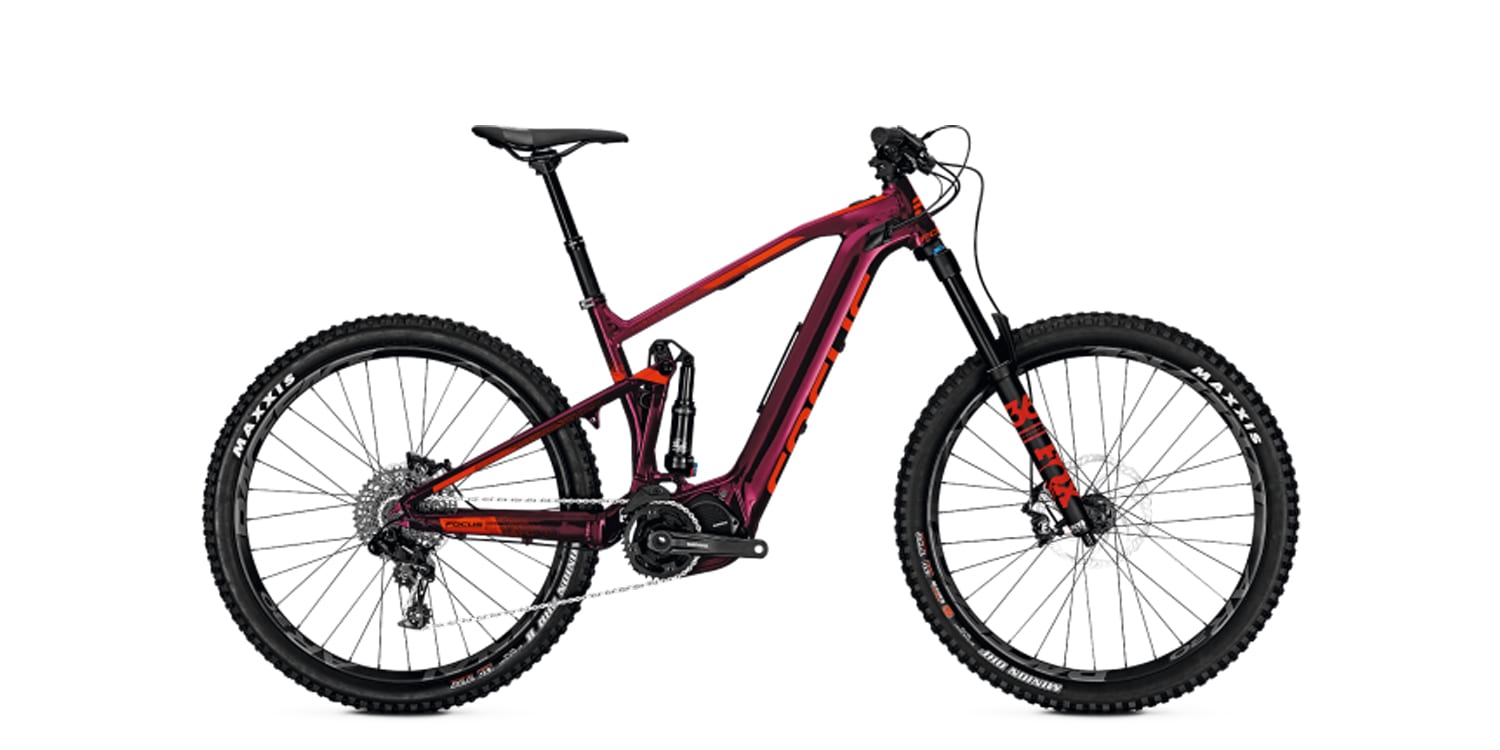
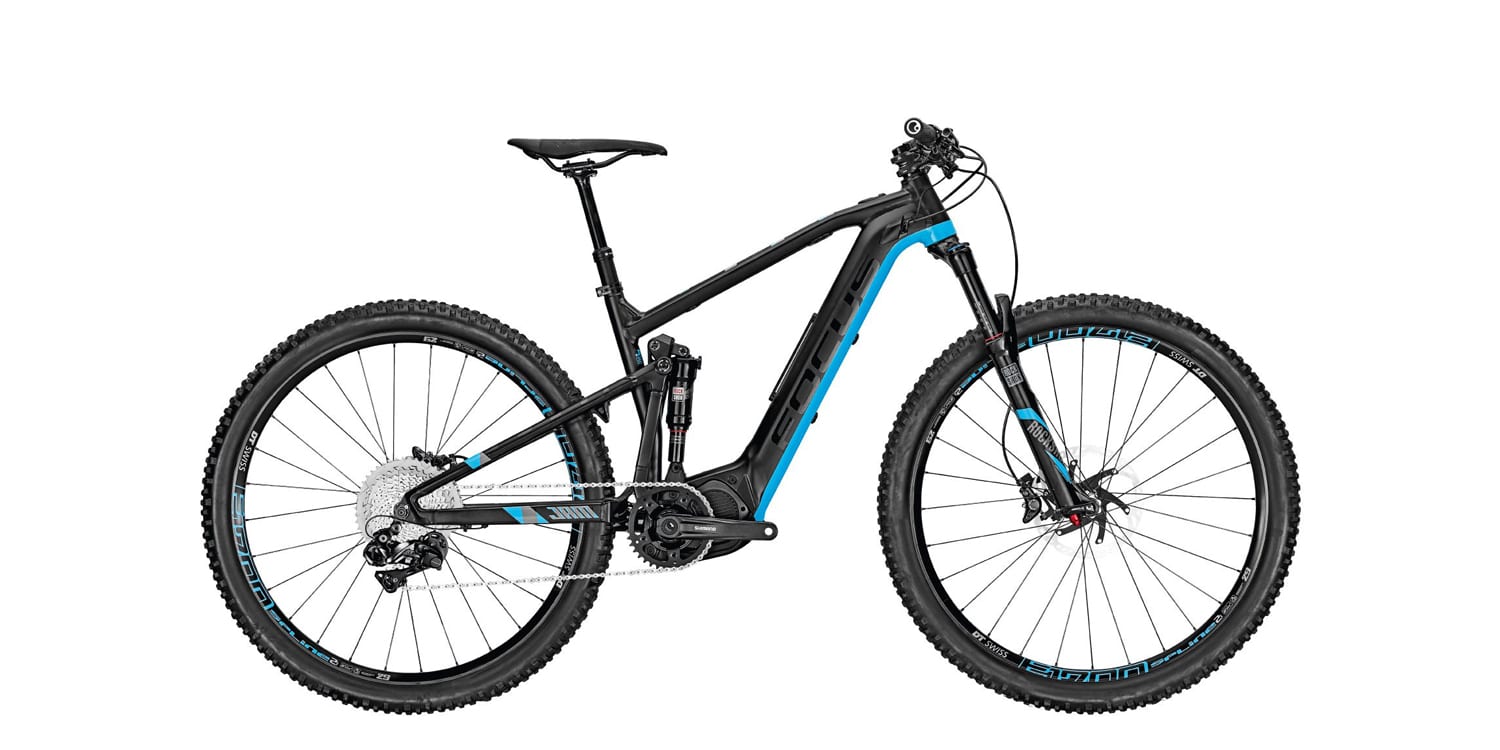
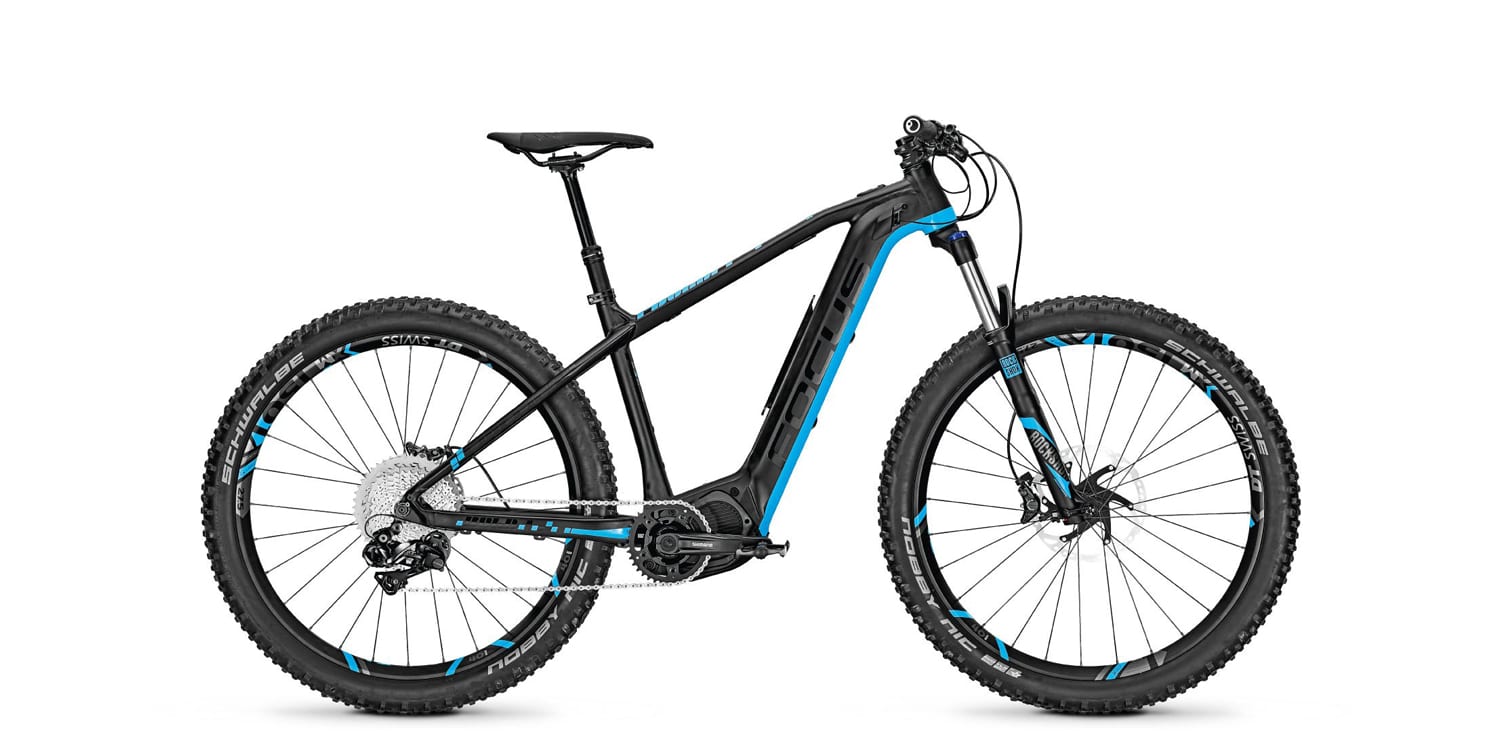
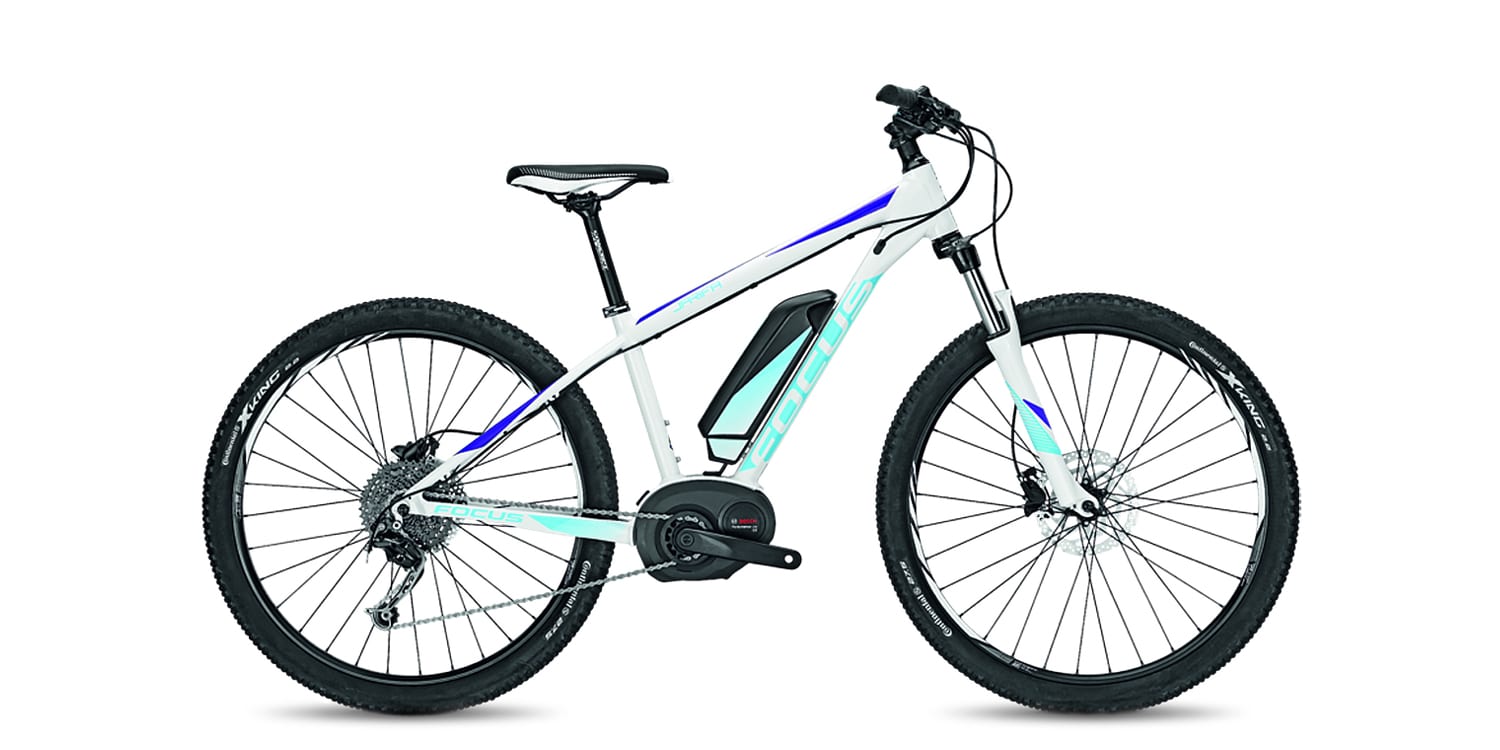
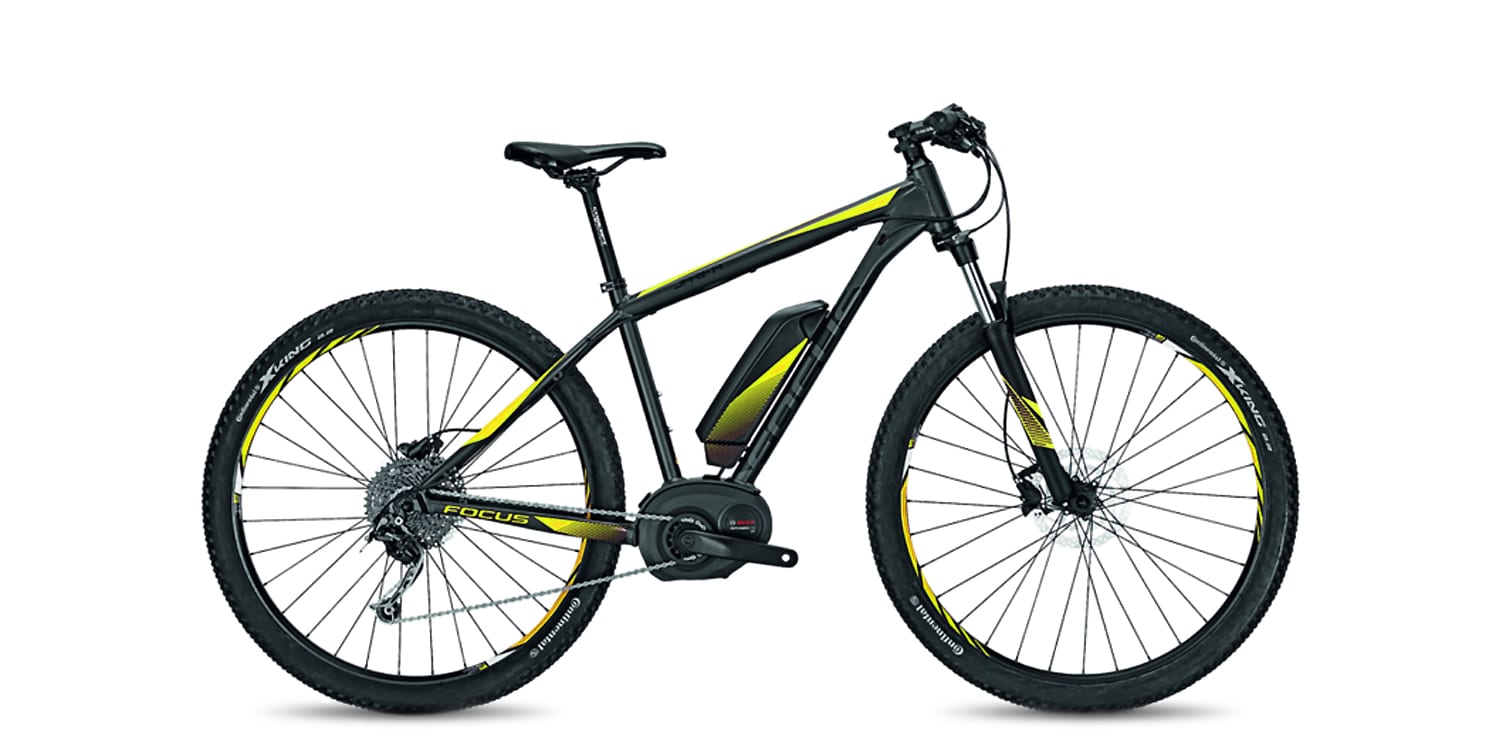
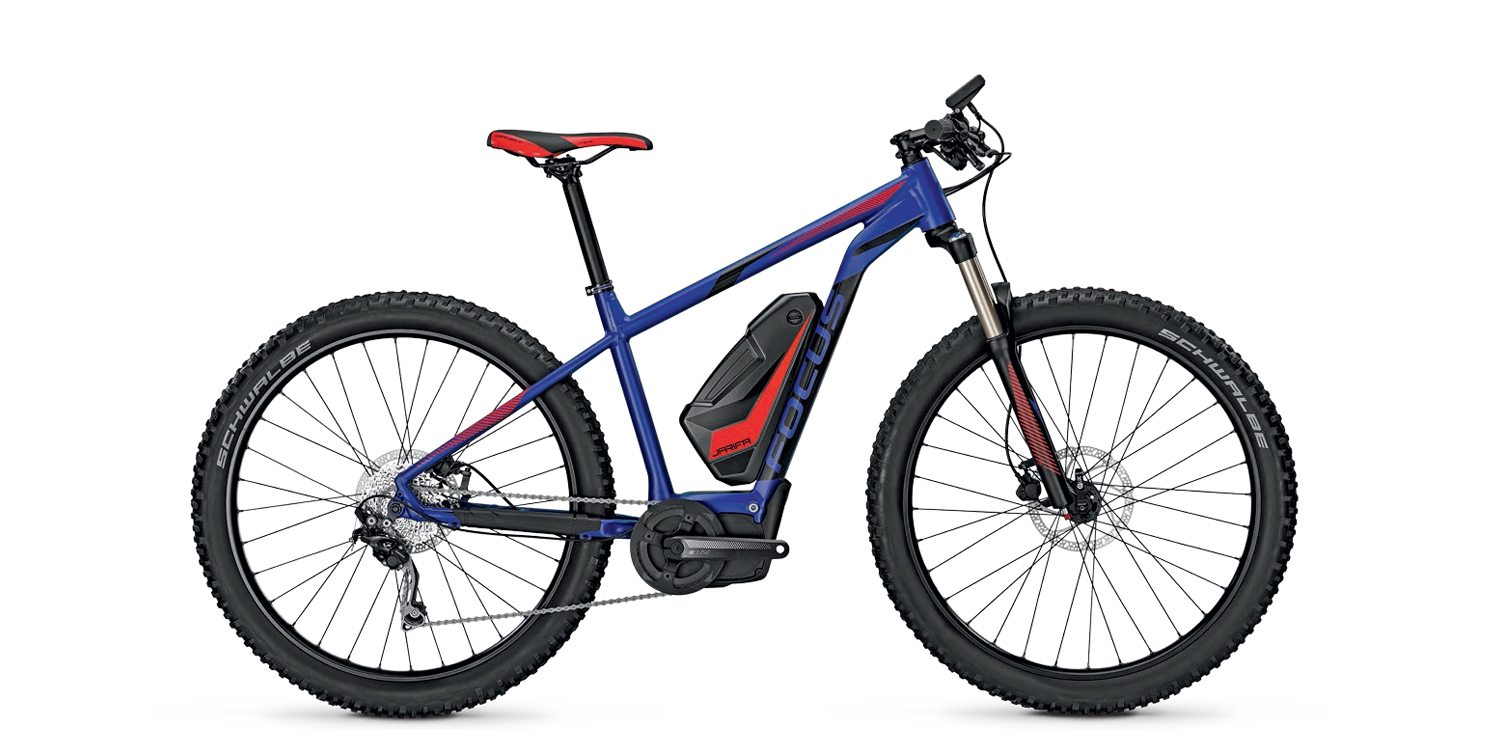
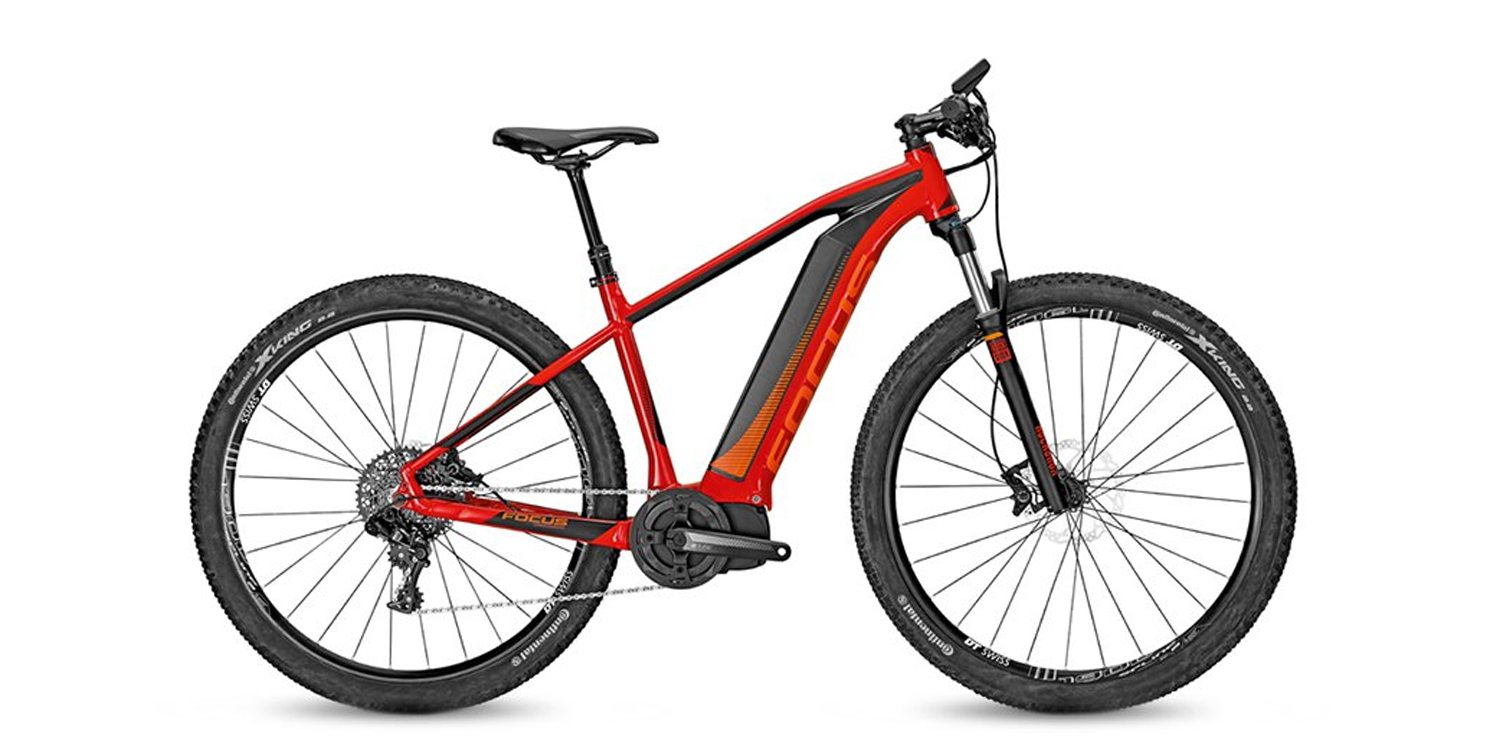
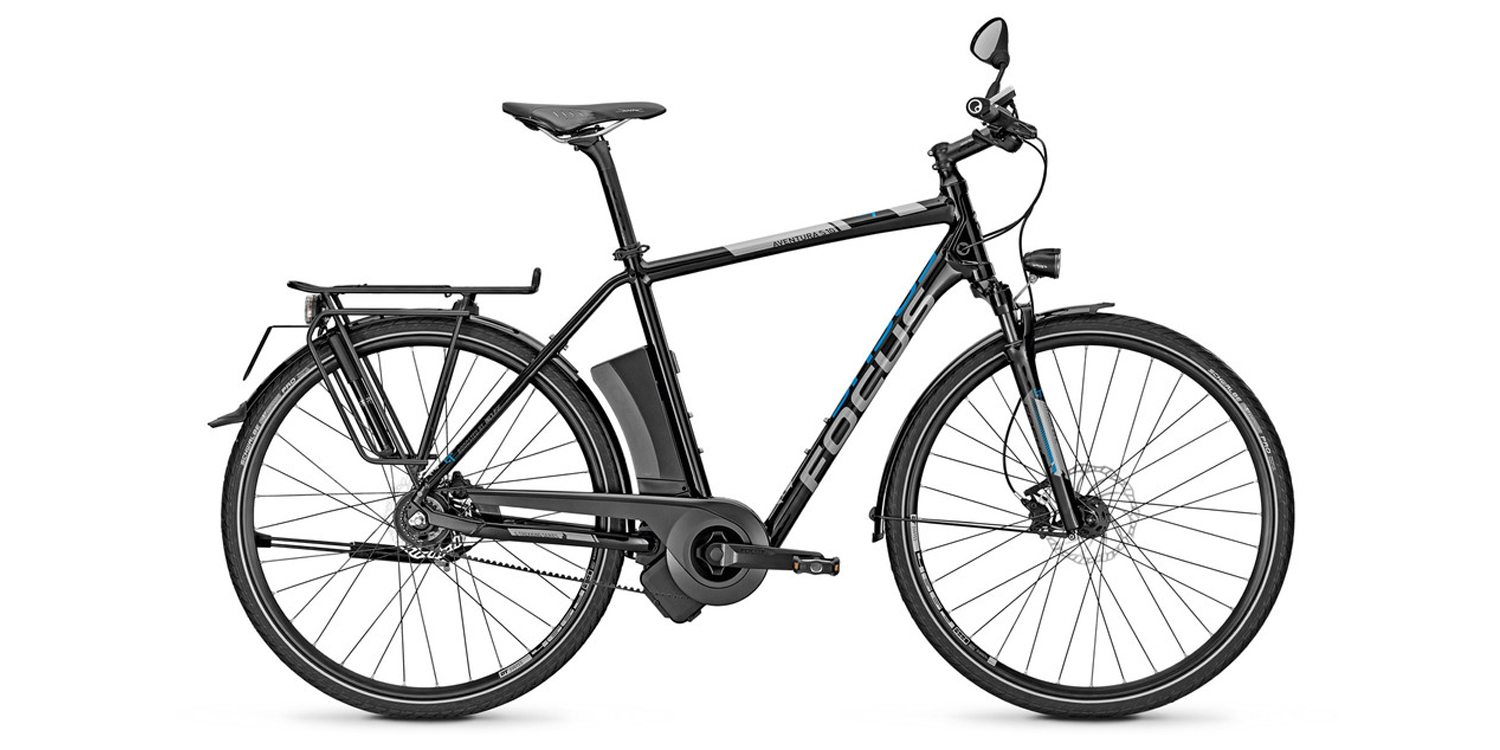
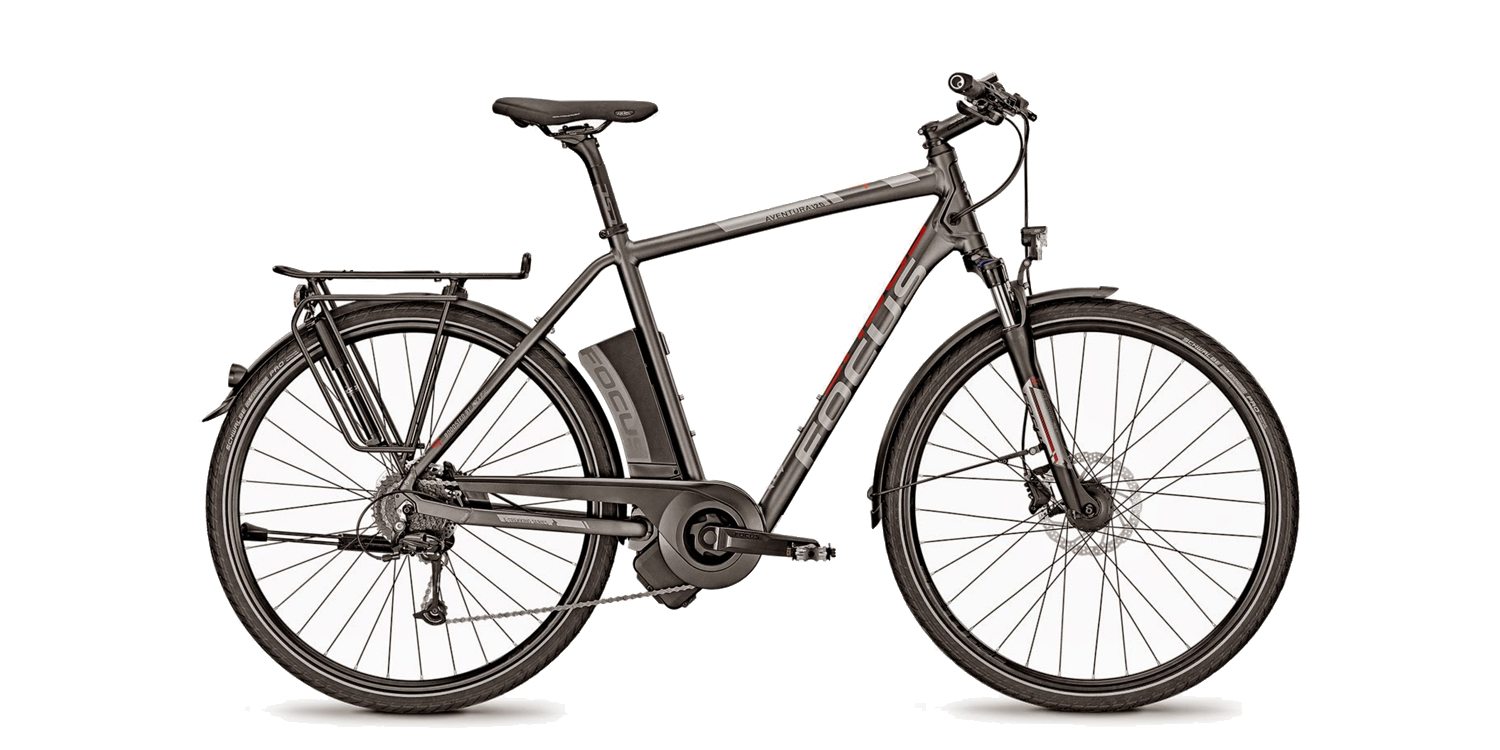
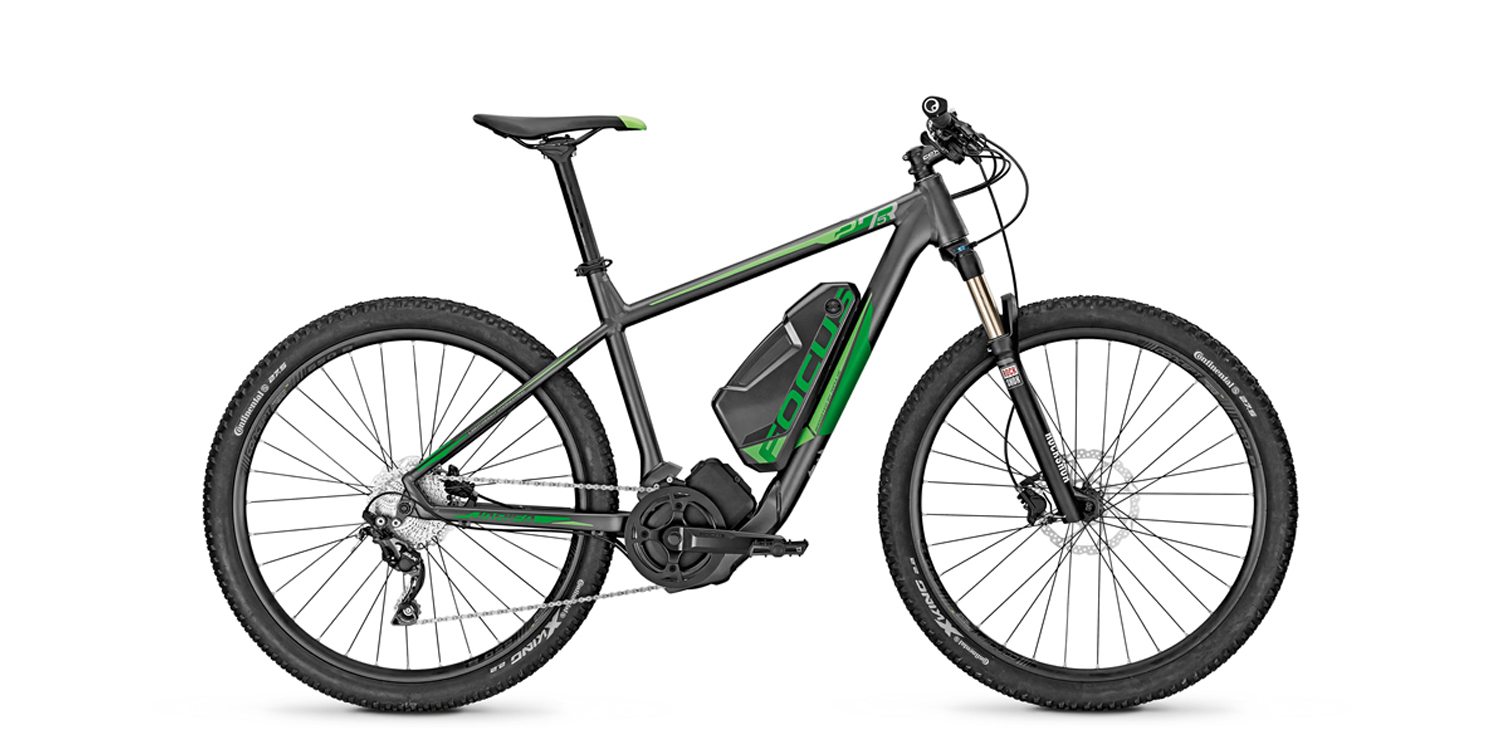

Chris says
Have you had a chance to review the “Focus Paralane² e-road bike”? It is on their English language web page here. Perhaps it is not yet available in the U.S.
court says
Very cool! I saw a concept bike like this at Interbike 2017 called Project Y (skip to 21:42 in the video here). I asked if there would be a Class 3 version that would go faster and they said no, which bummed me out a bit. It’s a beautiful, lightweight, road styled ebike that gets me VERY excited because it’s so compact… really emphasizes the bicycle aspect of ebikes and what they could become. I have not been able to test ride this model yet but will definitely keep an eye out :D